
BCA Insider – A BCA Member Publication Dedicated to Businesses in the Billiard and Home Leisure Industry Fall Edition | September 1, 2023 Leagues of Their Own 2023 BEF Junior National Recap The Importance of Insurance

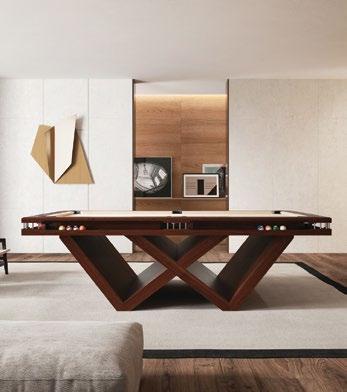

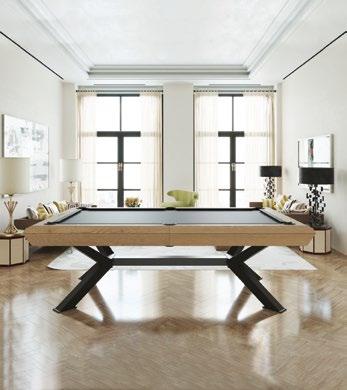
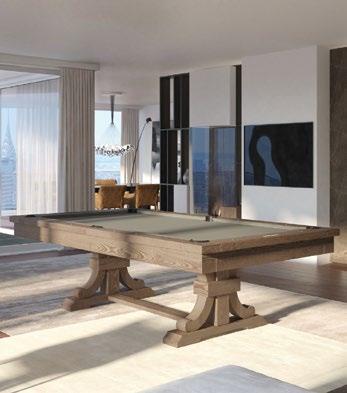

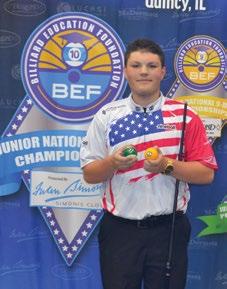

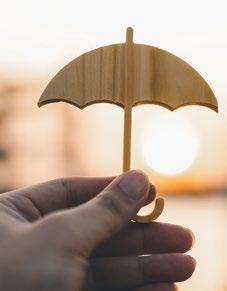
2 | BCA INSIDER • FALL ISSUE 2023 IN
12 Galiek Saville Wins Jerry Briesath Instructor of the Year Award By Keith Loria 49 Get to Know Kelly Fisher By Keith Loria 54 One-on-One with Oscar Dominguez By Keith Loria 58 Jam Up Apparel Succeeds by Creating Perfect Clothes for Pool Players By Anthony Stoeckert 64 Joe Pechauer Honored with President’s Award By Anthony Stoeckert 08
The Importance of Insurance 18
Stoeckert Leagues of Their Own 36 Skip Maloney of AzBilliards Iowa’s Sam Henderson Wins 18u 10-Ball and 22u 14.1 at BEF Junior Nationals
THIS ISSUE
Keith Loria
Anthony
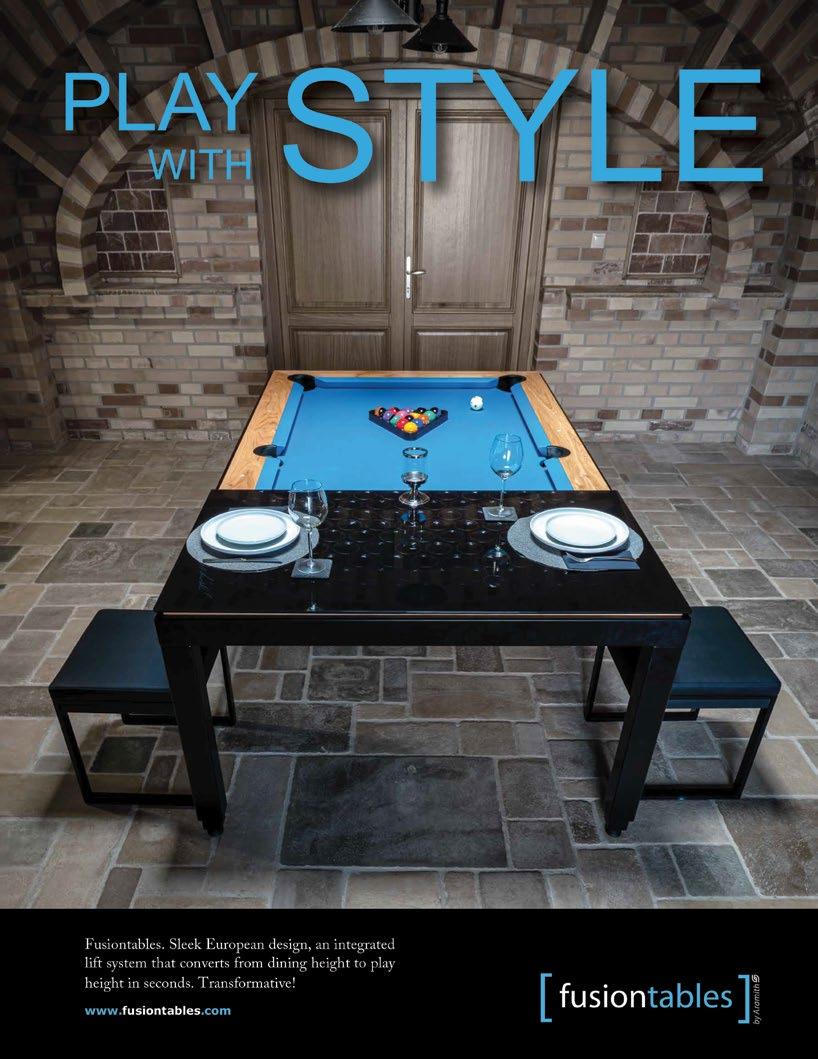
EDITORIAL
EDITOR-IN-CHIEF
Keith Loria billiardskeith@gmail.com
CONTRIBUTING WRITERS
Keith Loria
Skip Maloney
Anthony Stoeckert
ADVERTISING
Steve Mathias steve@bca-pool.com (303) 243-5070 x124
DESIGN/LAYOUT
ART DIRECTOR
Julie Snee julie.snee@gmail.com
BCA Board of Directors
CHAIRMAN
Philippe Singer, The Predator Group

VICE-CHAIRMAN
Shane Bouchard, Maine Home Recreation
SECRETARY
Ed Liddawi, Sandcastle Billiards
TREASURER
Trey Stites, Champion Shuffleboard
BOARD MEMBERS
Jacklyn Ady, The Brunswick Billiard Group

Debbie Corvey, Boynton Billiards
Maria Martinez-Trent, Beyer & Brown/ Pool Tables Plus
Robbie Selby, R and R Outdoors
OPENING LETTER
It’s fall, and that means in many parts of the country, leaves are changing colors, kids are going back to school and our annual fall issue of the BCA Insider is out.
I recently returned from Quincy, Illinois and saw some of the best young billiard players perform in the 2023 BEF Junior National Championships. What an exciting event it was. You can read about the thrilling tournament in the pages ahead. The BCA also held our inaugural instructor summit this summer and we are already looking forward to next year.
Speaking of next year, the BCA Expo is right around the corner, taking place at the Las Vegas Convention Center March 20-21. Be sure to save those dates because this is an event you won’t want to miss.
In this edition of BCA Insider, we explore some of the top amateur pool leagues around the country; we talk with Hall of Famer Kelly Fisher about her career; and profile the honorees for both the BCA President’s Award and Instructor of the Year.
As many of you know, BCA members Ruth and Gary Lucchesi of Eastern Billiards suffered a devastating fire at their business this summer, and tragedy can strike anytime, so we also delve into the importance of having insurance in the pages ahead.
This fall, we’re excited to launch our Certified Billiard Congress of America Installer program. You will see an ad with details on page 16, but you can also contact BCA Installer Committee Chair, Shane Bouchard at (207) 740-6135 for more questions, details and information about how the Installer program can help your business.
We understand the importance our membership places in our annual Expo and devote a lot of thought in identifying ways to improve your experience at our signature, industry event. In recent years, we moved the date of our Expo and partnered with the Amusement Expo to offer our members a comprehensive leisure sports experience. As we prepare for our 2024 Expo in Las Vegas on March 20-21, we feel optimistic about the success of this event. The number of manufacturers returning, and the rapid filling of demonstration and sales space has us forecasting a very productive 2024 Billiard, Amusement and Home Leisure Expo. Vendor registrations are up significantly as we continue our push to provide an Expo experience that is productive for your bottom line. Get your space now and save the dates, March 20-21, 2024. These are going to be Can’t Miss Days for the billiard and leisure sports industry.
Wishing you all a great final few months of the year! Warmest regards,
4 | BCA INSIDER • FALL ISSUE 2023
BCA Insider is published by Billiard Congress of America © 2023 bcainsider.com PHILIPPE
PRESIDENT, BCA BOARD
SINGER,


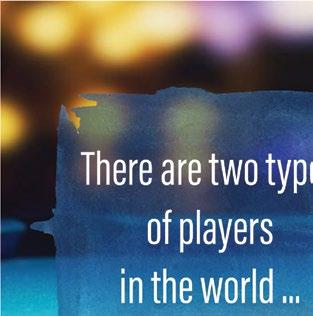
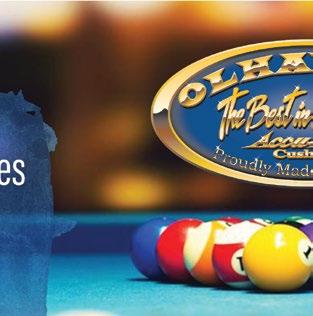
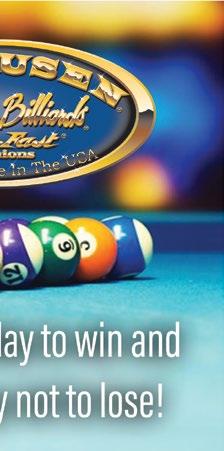

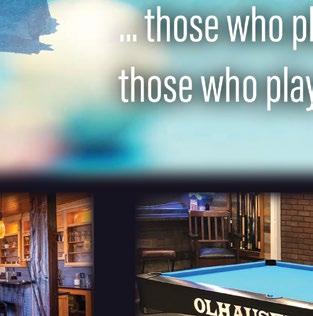

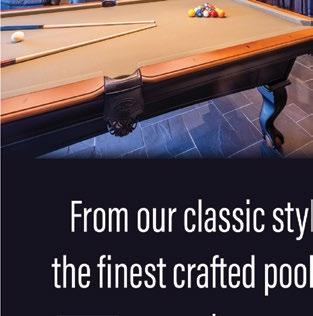
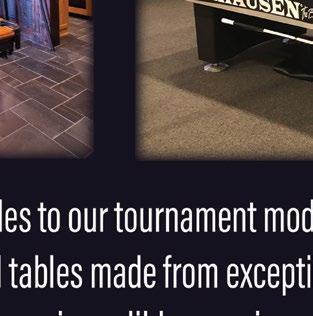



The Importance of INSURANCE
 By Keith Loria
By Keith Loria
Last issue, BCA Insider profiled Eastern Billiards and the Lucchesi family, as well as the tremendous impact they have had on the billiards world over the last 75 years.
Tragically, on June 20, Eastern Billiards suffered a devastating fire and the Kissimmee, Florida-based store is now closed and out of business as the owners await word from the insurance company. Ruth and Gary Lucchesi are hoping that this isn’t the end.
The heartbreaking clean up involved weeks of work from family and friends as they filled three 20-yard dumpsters and two 12-yard dumpsters in just a little over five days. Most everything was unsalvageable.
Eastern Billiards’ warehouse contents were a total loss to the fire. The showroom had no actual fire damage, but the heat, water and smoke ruined the cues and much of the accessories. Plus, the lathes Gary used for cue repairs were completely rusted from the water.
A Go-Fund-Me page has been set up to help the Lucchesi family with expenses as it works to get back in business:
www.gofundme.com/f/help-by-giving-back-to-gary-ruthlucchesi/donate.
A disaster like this just shows the importance of having insurance. All billiard businesses, whether a retailer, pool hall, manufacturer or even instructor should have insurance to protect their business.
It’s important that all businesses have the correct insurance coverages and understand the different coverages as it can get confusing.
Brent Friesth, owner of Bolder Insurance, notes that there are a myriad of things that can go wrong or accidents that can happen, opening retailers up to exposure and possible lawsuits.
“Retailers will think about the obvious; insuring their inventory and liability,” he says. “It’s the things they would neglect to think about that they need advice on. That could include crime, theft of money, cyber liability and other things that they should consider.”
8 | BCA INSIDER • FALL ISSUE 2023
Property damage can include snow causing a roof to collapse or water damage from a tropical storm or even a liability claim from someone slipping and falling on a wet surface. And with so much money tied into inventory, the possibility of theft or in-store damages by customers must be factored into the insurance equation.
“Most policies, without even trying, will cover those kind of tragedies,” Friesth says.
One of the smartest things a billiard retailer can do is work with someone who understands the business. After all, every industry has its quirks, and agents who have experience finding policies for billiards shop owners tend to have an idea of which risks to be aware of, which carriers offer good policies, and which endorsements are most important.
GENERAL LIABILITY INSURANCE
General Liability Insurance is the baseline policy for any business. It’s sometimes called “slip-and-fall insurance” because one of the things it covers is third-party injuries on the business premises. For a retailer with a lot of foot traffic, General Liability is a must. Limits for this policy vary, but the most popular one is around $1 million.
Depending on the size of your business (and possibly on the terms of your lease), you may be required to carry more. Let’s say a family comes into your store and buys a billiard table for their game room.When they get home, their 9-year-old daughter is playing close to the table, trips over a cue, and bangs her head on the table. She needs five stitches and the family decides to sue your business for the medical bills, alleging that there should have been a minimum-age warning on the table.
Well, this lawsuit falls under the product liability portion of your General Liability Policy.You file a claim with your insurance provider, which provides a lawyer to negotiate with the family. The lawyers decide it’s best to settle for the amount of the girl’s medical bills ($4,000), which your policy covers. All you have to pay is the deductible on your GL policy.
Another thing to consider is slips and falls on the retail premises and outside in the parking lot, which are also covered by a GL policy. Still, a retailer should ensure they have proper lighting, shovel and salt when necessary, include signage about wet floors, and promptly clean up any spills.
PROPERTY INSURANCE
Property Insurance covers all inventory and the physical space where one operates. Depending on the size of the business, a retailer may qualify for a Business Owner’s Policy, which bun-
dles general liability with property for a discount on both. Be sure to consult with an agent about what your property policy covers – most standard policies exclude damage from floods and earthquakes, so if you live in an area prone to either, you may need an endorsement to cover these exposures.
Property limit needs vary by business, based on inventory and location.
CYBER LIABILITY
Any business that accepts credit cards or online payments should have Cyber Liability Insurance. Retailers are attractive targets to hackers because they tend to process a high volume of customer information. This policy covers the costs associated with recovering from a data breach (notifying customers, paying for data monitoring, investigating the breach, etc).
“There’s something called social crime where someone convinces you to send them money,” Friesth says. “You may think a wholesaler is asking for money when in reality, it’s a hacker. That can be covered, but it has to be discussed and dealt with. It’s not expensive coverage either, but it’s something you have to ask about how to get that covered.”
ALSO OF NOTE
Insurance for a retail store is all about protecting your assets so if in fact you are negligent for an act, you want to make sure you have enough insurance to take care of what happens.
Important extras might mean a few extra insurance necessities such as property endorsements for flood, earthquake, and other types of damage. It’s also a good practice to add Excess Liability Insurance, so a store is covered beyond the initial $1 million coverage. For just a few hundred dollars, a retailer can buy up their liability coverage in increments of a million dollars.
Automobile Liability Insurance is also something that any retail store that has its own movers or company car needs to have. Also, in every state but Texas, any business that has employees is required to have Workers’ Comp Insurance. Requirements are entirely at the state level, so the best place to find out about your requirements is through your state government.
TIME FOR CHANGE
Insurance isn’t something that should just be purchased once and forgotten about. When a policy is up for renewal, it’s a savvy move to reexamine your policy, see if there are chances to save money and compare to other companies to find the best deal.
BCAINSIDER.COM | 9
“If a business is growing and changing fast, that’s a situation where they should be looking at things every year, maybe even more often depending on how fast things are changing,” Friesth says. “But if they are an established business and there are no radical changes within a year, every couple of years is fine.”
One of the first considerations a business owner should think about in advance of their insurance policy renewal is whether they believe they have the right broker and carrier partner.
Once someone has determined they have a right broker and carrier partner, it is important they evaluate their current insurance program to determine if they feel they need to make any changes at renewal. One key indicator to whether or not an insurance program needs to be re-evaluated is if there have been any changes to the store or operations since the last re-
newal and whether the insurance agent and carrier partner are aware of these changes. Doing this will ensure coverage is in place to respond to these changes to their operation or facility.

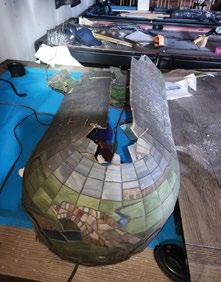
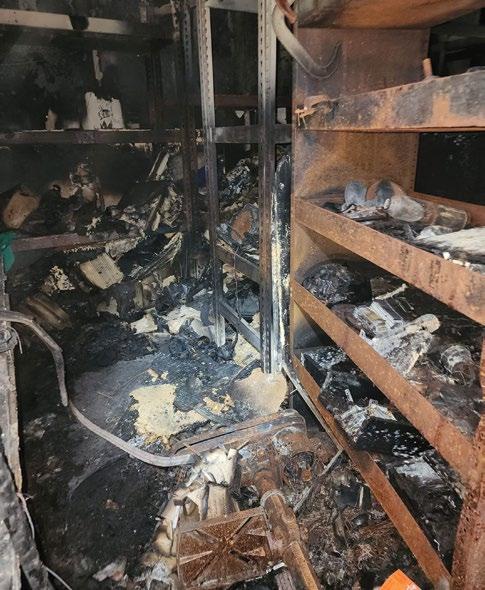
FOR THE POOL HALLS
Coverage for pool halls is somewhat different, Friesth says, explaining they need liquor liability for one thing.
“It’s different in the fact that the liability is different because they are serving alcohol and doing pool tournaments and things like that,” he says. “It can be covered, but it would be a different policy that a retailer would acquire.”
10 | BCA INSIDER • FALL ISSUE 2023
Eastern Billiards


The Billiard, Amusement and Home Leisure Expo March 20-21, 2024 | Las Vegas Convention Center theSaveDate! Join the Fun bcaexpo.com #billiardexpo Co-located with
Galiek Saville WINS JERRY BRIESATH INSTRUCTOR
OF THE YEAR AWARD
By Keith Loria
Galiek Saville of South Africa has been selected as the winner of the prestigious Jerry Briesath Instructor of theYear Award.

Every year, the Professional Billiard Instructors Association honors a PBIA instructor who has made exceptional contributions to the goals of the organization and Saville exemplifies that definition.
Saville was nominated for Instructor of the Year by Roy Pastor, a PBIA Master Instructor who specializes in training junior players.
“No one is more deserving of the 2023 PBIA Instructor of the Year award than Galiek,” Pastor says. “He has spearheaded the growth of billiards in South Africa by focusing on the youth of his country.”
Pastor won the Jerry Briesath Instructor of the Year Award in 2020 and was inducted into the New England Billiard Hall of Fame in 2018.
“When I found out by Roy Pastor that I was nominated for the Instructor of
the Year award, I was overjoyed and thought what an achievement already,” Saville says. “Then after two weeks, the news that I won was released and I was like, ‘Wow!’ Being a teacher, coach and a mentor gives me so much joy, and this award was just a big blessing for the hard work.”
Saville was born in Cape Town and grew up in Manenberg, South Africa, which he noted is “one of the most dangerous places in Cape Town, infested with gangsterism and drug abuse.”
He found solace in the sport of billiards and attributes his positive arc in life to his mentor, Vincent Joseph, his youth billiards coach who exposed him to advanced concepts of the sport and the need to practice continually and avoid the distractions that life provides.
It’s that knowledge that has helped him become one of the top instructors in the world.
“I’m a pool player, and since the day I started playing, I enjoyed learning about the game and sport,” Saville says.
12 | BCA INSIDER • FALL ISSUE 2023
TOURNAMENT-TESTED COMMERCIAL QUALITY FOOSBALL TABLES
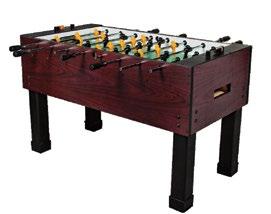
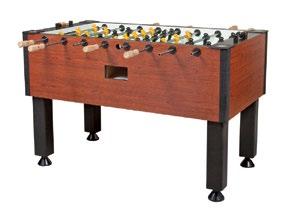


WORTHINGTON
Tornado commercial grade performance built in a beautiful, finished-wood table. The contrasting Black and Soft Maple stain brings a warm look to any game room, and matches the Worthington tables from Champion and Connelly.
ELITE
The Elite table is a commercial table available for the home. This beautiful table features dual ball returns, heavy gauge rods, and patented split bearings for easy cleaning and maintenance.
CLASSIC
The Classic table combines a contemporary look with heavy duty construction and many of the features found on commercial tables.
SPORT
The Sport table is the perfect table for young foosers and the more experienced player alike. The adjustable height and durable construction allow for generations of enjoyment.
All Tornado Foosball tables deliver commercial quality and features to home play. Patented bumpers, men, and balls are a result of Tornado’s decades of commitment to being the foosball industry leader.

“As an instructor and coach, I have found so much joy watching my students reach for the stars. I have found even more love and passion for the game from instructing my students.”
He started instructing at 23, becoming manager of his provincial junior team.
“This is where my passion and love started for coaching and instructing started,” he says. “It just started to run through my views that this is what I must do.”
In 2020, Saville’s non-profit program, Pool4Change became an associate member of the South African Confederation of Cue Sports and in 2021 Saville partnered with the Billiard Congress of America’s Break and Run Premier Junior Instructional Program to develop a curriculum and teaching structure that applies online learning to reach more students.
“I like teaching because I am also a player and I saw there is always a need for a teacher, coach, instructor and mentor in anything you do,” Saville says. “Our youngsters today need to be guided in the right direction to become our future champion athletes.”
Pool4Change ensures that each facility has at least one trained coach to help assist students at any time. The program is currently prioritizing equipment placement in schools and has currently put over 100 pool tables in schools since 2022.
“ I HAVE FOUND SO MUCH JOY WATCHING MY STUDENTS REACH FOR THE STARS.”
“Galiek has been an outstanding instructor for many years, but his work this past year is especially noteworthy. His Pool4Change/Break and Run youth program has helped young players start toward being the next generation of champions,” says Keith Hargrave, PBIA committee chair “His progressive instruction methods not only reach young players all over South Africa, but his curriculum is also readily adaptable for all skill levels.”
Through instruction, coaching, education, teamwork, and tournaments, the young people of South Africa are given tools through which to thrive. The program is currently available in 224 schools serving approximately 14,000 students.
“I teach kids from schools where there are pool tables and also arrange some online coaching with schools,” Saville says. “I also do coaching at a venue

called Pool International, where our school league plays and bigger groups are being coached there.”
He considers his proudest achievement as being named the manager of the Under 18 team at the World Championships, where his team came in second and his son won the national Under-15 championship.
Billiards is in Saville’s blood and he notes sharing his passion with youth and watching them perform both locally and internationally is his greatest reward.
“I always give all my assistance to the young people to get involved in the sport because it can help them in being good people,” Saville says. “There are a lot of fundamentals that can help them and billiards empowers our youngsters.”


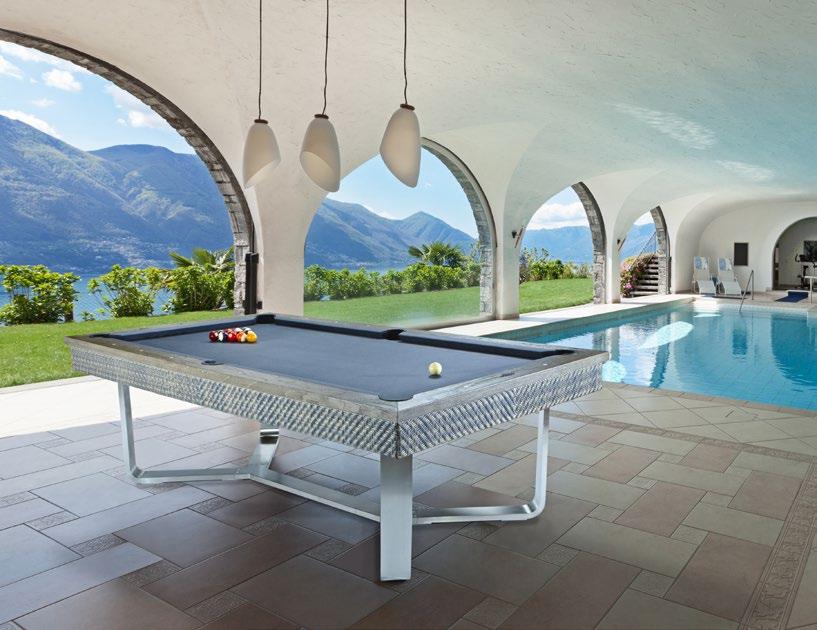
L ANAI The BALI PARADISE AWAITS FROM THE COMFORT OF HOME ALL-NEW INDOOR / OUTDOOR COLLECTIONS 800-835-7665

ARE YOUR INSTALLERS BCA CERTIFIED? Benefits of having a BCA Certified Installer on your staff: • Inspires consumers confidence • Additional sales tool • Customized listing on Billiard Congress of America Website (BCA-Pool.com) • Free admission to the BCA Expo including installer-specific training and seminars • Free subscribtion to BCA Insider magazine Scan Here Sign up your installers today! Use Promo code BCAInstaller24 to get a 50% discount on 2024 Installer annual dues!
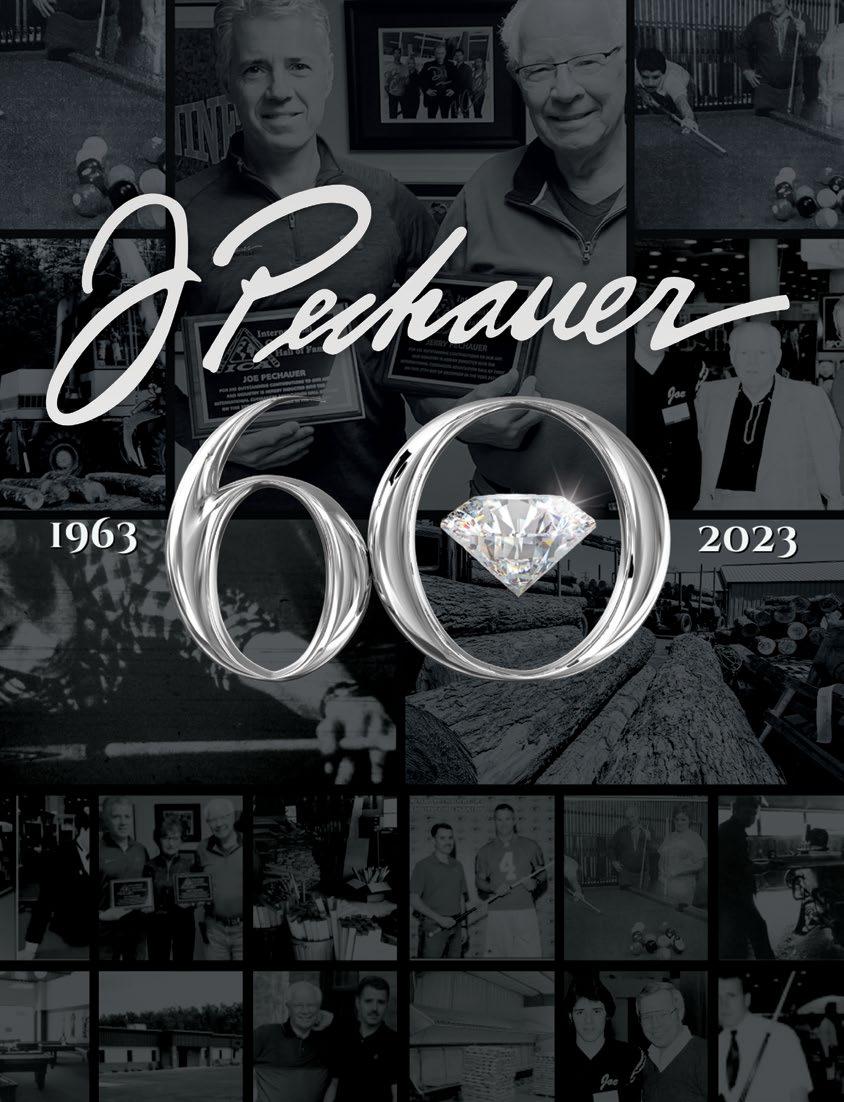

PROUDLY MADE IN THE USA SINCE 1963 www.pechauer. com sales@pechauer.com 4140 Velp Avenue Green Bay, WI 54313 1- (800) 934-7735 920) 434-7755 FAX (920) 434-7757

LEAGUES OF THEIR OWN
By Anthony Stoeckert
Pool leagues are an essential component to the success and future of the game we all love. All over the country, pool players get together to test their skills in competition and to simply foster friendships. Many leagues also host big tournaments that bring together players from all over the U.S., and other countries, who want to test their skills in competition.
One of the most important things to know about these leagues is that they aren’t exclusive to topnotch players, many of them welcome pool enthu-
siasts of all skill levels, both junior and adult competitors. Leagues are one of the best things about the industry, and the game, as they provide pool enthusiasts with a forum to improve their game and have fun in a welcoming and encouraging environment.
It’s important to spread the word about these amazing leagues, and to do so, BCA Insider talked with leaders from some of the most renowned and respected pool leagues around to find out what they’re all about.

ACS
The American CueSports Alliance (ACS) is a sanctioning body in the United States that produces two major national billiard tournaments each year.
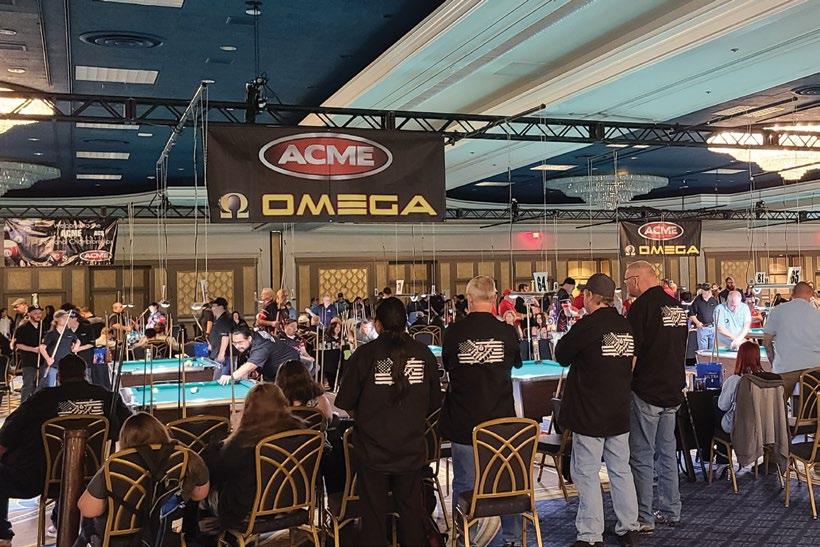
“We sanction leagues around the nation and currently have 150-plus leagues consisting of about 18,000 players,” says Janet Ybarra, executive director of the American CueSports Alliance. “Our sister organization in Canada – the Canadian Cue Sport Association (CCS) – sanctions 5,000 players, so we have a North American total of 23,000 players.”
Headquartered in Grand Prairie, Texas, the ACS has leagues in 25 states and 10 Canadian provinces. Membership costs $15 per player annually, and members who meet eligibility requirements can participate in both ACS and CCS events.
Ybarra notes that the ACS focuses on casual to serious amateur and junior players. It also certifies instructors and referees and has developed strong numbers in these fields.
She also reviewed some of the league’s major events.
“The ACS produces the ACS National 8 and 9-Ball Championships in May each year held in Las Vegas,”Ybarra says. “And the ACS Midwest Championships in January each year is held in Davenport, Iowa. The ACS currently has 12 state associations holding state championships annually. In addition, the CCS holds the Canadian Nationals, held in Niagara Falls each year, along with four other regional events across Canada.”
The ACS was founded in 2004, and Ybarra says one aspect that makes it special is that it is truly an ACS league-sanctioning body.
“We will sanction both new leagues and already-existing leagues without a local league having to change its traditional structure,” she says. “This makes it very easy to get on board with ACS, and even already-sanctioned APA, BCApl, and VNEA leagues can ‘dual’- or ‘triple’-sanction with ACS and offer their players even more benefits and opportunities for postseason play. Also, many ACS instructors and referees can build on their resumes and expand their markets for service by also certifying through groups like VNEA, APA, BCApl and PBIA.”
Among the benefits to joining the ACS that Ybarra highlighted is added credibility for leagues because they become associated with a national organization.
20 | BCA INSIDER • FALL ISSUE 2023
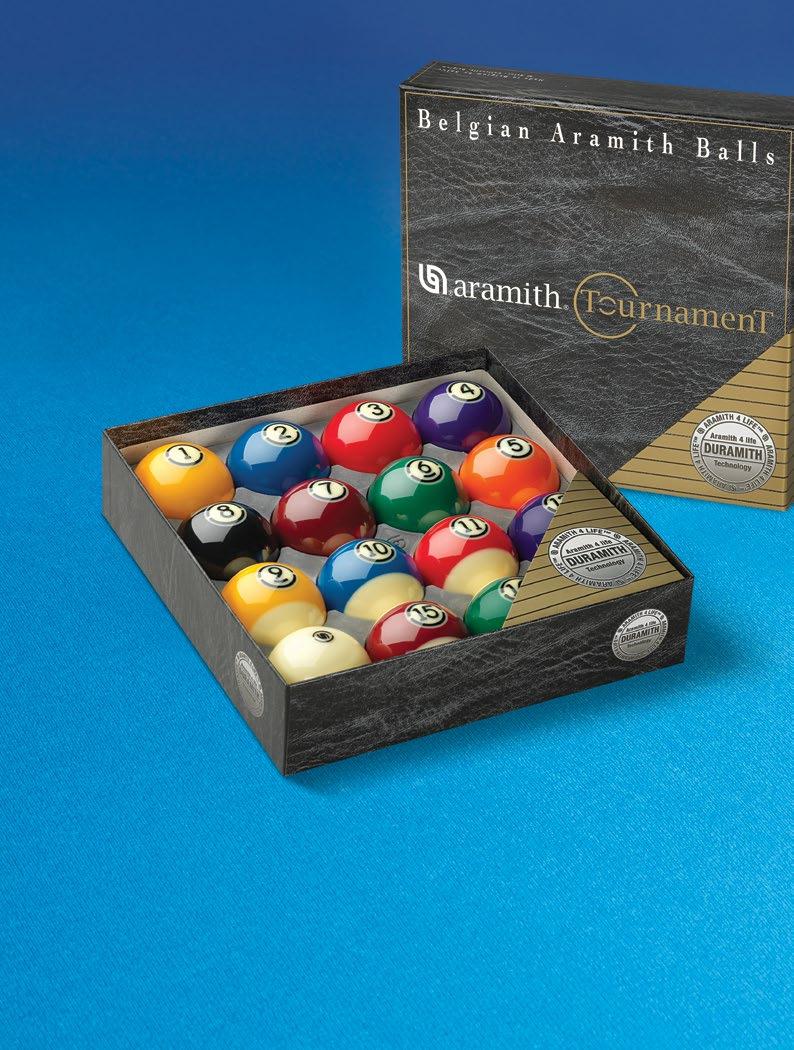


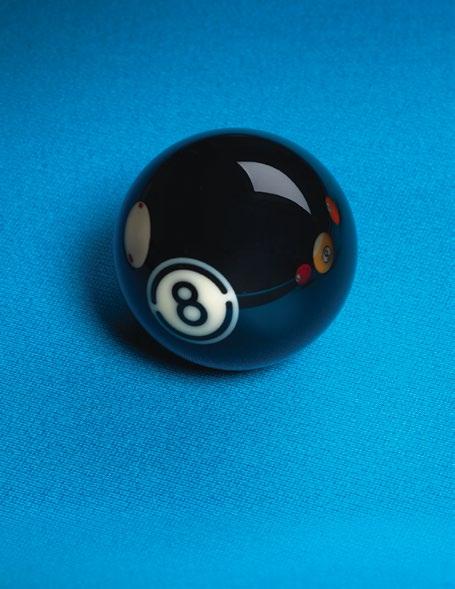
1948 2023
“The ACS can also offer valued advice to league operators and league players,” she says. “The ACS will sanction local player-run leagues and local owner-operated leagues. The most prominent benefit is ACS-sanctioned players qualify to play in ACS and CCS national and state/provincial events beyond their local league play.”
The ACS does not make its own rules of play, unlike other national league associations. The ACS follows the world-standardized rules set down by the world-governing body for the sport: the World-Pool-Billiard Association (WPA), which is recognized under the International Olympic Committee. Also key, Ybarra says, is that the $15 annual per player ACS sanction fee is among the lowest of all North American league systems.
Upcoming ACS events include the 2024 ACS Acme Midwest 8-Ball Championships, Jan. 17-21 at RiverCenter Convention Center in Davenport, Iowa. For more information, go to www. americancuesports.org. The Canadian Cue Sport Association’s 2024 CCS Nationals will be held March 11-16 at Sheraton on the Falls and Casino in Niagara Falls. Go to www.cdnqsport. com for more information. And the 2024 ACS Acme Nationals will be held May 11-18 at Westgate in Las Vegas. For more information, go to americancuesports.org.
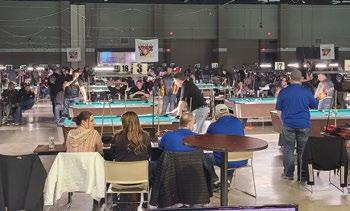

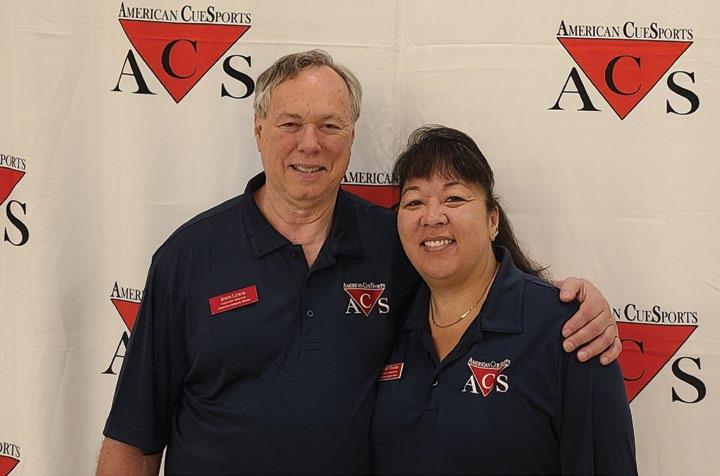
22 | BCA INSIDER • FALL ISSUE 2023
John Lewis and Janet Ybarra of ACS
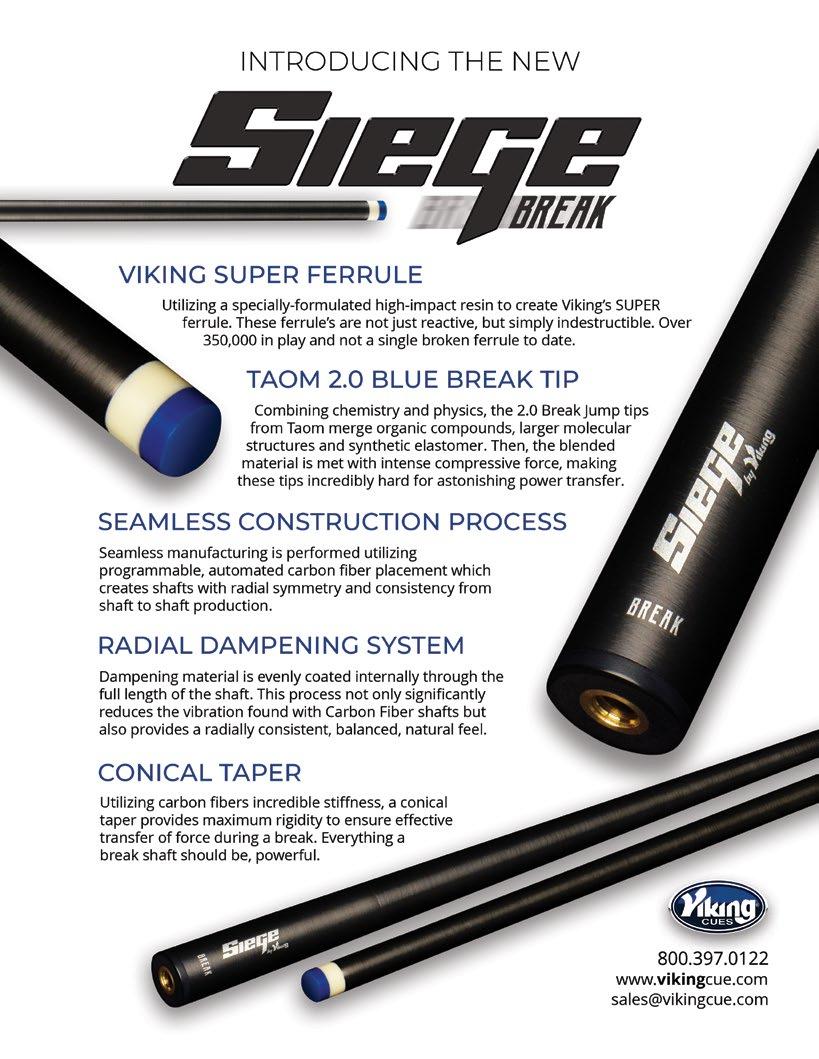
APA
Founded in 1979, the American Poolplayers Association (APA) is approaching its 45th anniversary. It got its start when Terry “Texas Terry” Bell developed an idea for a centrally controlled nationwide amateur pool organization.
“He realized how popular billiards was becoming and knew that no organized system for recreational league play existed,” says Jason Bowman, director of marketing for the APA. “So, amid much skepticism among professional players, Bell joined forces with Larry ‘The Iceman’ Hubbart, who was also competing on the professional circuit. Together they founded the American Poolplayers Association, Inc. (APA) in 1981 to act as the sanctioning body of the league.”
Previously known as the American Pool League, Busch Pool League, Bud Light Pool League and the Camel Pool League, the APA now sanctions and oversees the APA 8-Ball League and APA 9-Ball League in the United States, the Canadian Poolplayers Association in Canada, Japanese Poolplayers Association in Japan and APA of Singapore.
Nearly 250,000 players compete in weekly APA/CPA/JPA and APA of Singapore Leagues across the globe. And there are APA leagues in 49 states and in three other nations – Canada, Japan and Singapore.
APA members pay a $30 annual fee to join the association and then each team pays a weekly league fee when competing in their local league area. The weekly league fees vary by area.
Among the league’s highlights are the two major championships it holds each year in Las Vegas.
“In the spring we offer the APA Poolplayer Championships, which is focused on individual and doubles competition, and each August, we host the APA World Pool Championships which features team competition,” Bowman says. “The APA World Pool Championships is designated by Guinness Records as the ‘World’s Largest Pool Tournament’ and brings in approximately 15,000 participants throughout the 10-day
event. Together these events pay out over $2 million each year. We also offer the APA Junior Championships for players ages 7 to 17, and our U.S. Amateur Championship, which is tailored to the very best amateur pool players.”
Bowman explaines that Bell and Hubbart applied their knowledge of the game to the development of a unique handicap system, known as The Equalizer, to level the playing field in the league.
“The Equalizer utilizes a formula that measures a scoring ability by counting the number of turns it takes a player to win a game,” he says. “The result is a handicap that determines the number of games a player must win to capture a match. After the handicap system was developed, the APA was formed as the sanctioning body of the league. In October 2010, Bell and Hubbart were inducted into the Billiard Congress of America Hall of Fame for meritorious service!”
APA pool leagues are open to amateur players of all abilities, from beginners to top players. Members are able to compete and try to qualify for local, regional and amateur world championships.
“They also receive great discounts from many national brands,” Bowman says. “Members also have access to their member services accounts, where they can track their stats, standing and much more.”
The APA is unique because it allows anyone, regardless of their skill, gender or age, to compete equally in its leagues.
“In addition to offering people the opportunity to play pool and advance to our fantastic events, each APA league also offers a sense of community to those that participate,” he says. “We hear countless stories of lives that have been changed by finding APA. Whether it’s a couple that met in our leagues and later married, someone finding camaraderie through the friendships they developed in the league, or even someone whose life was saved during a medical emergency by fellow league members. APA is about more than pool, it’s about bringing people together from all walks of life and making the world a better place.”
24 | BCA INSIDER • FALL ISSUE 2023


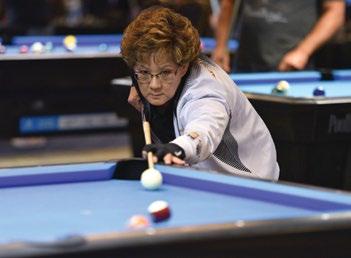

 Gregg Fletcher APA CEO
Gregg Fletcher APA CEO
VNEA
The Valley National 8-Ball League Association (“VNEA”) has chapters across the United States and in about 12 countries. More than 100,000 players compete in those leagues, and the highlight of the league is its annual VNEA World Pool Championships, held each year in Vegas in the spring.
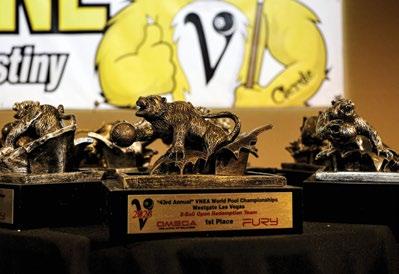
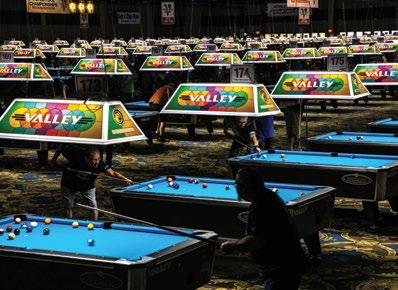
“Most of the state tournaments are for players from each state only,” says Gregg Elliott, executive director of the VNEA. “There are some regional tournaments, like Colorado-Wyoming, but for the most part, we have about 20 different state tournaments.”
The VNEA is unique because it is made up of vendors, or operators, around the country.
“We’re the only one that really has the operator become the member of the VNEA, then they go out and run leagues at the locations, where they have equipment, along with their jukeboxes, dart boards and everything else,” Elliott says. “So you must be an operator to join the VNEA; they are professional leagues run by the operator, as opposed to a player or individual. They are all run by legitimate businesses.”
The VNEA is in its 44th year. It started by Valley in 1980 with seven operators and about 2,500 players. Elliott, who joined the organization in 1988, says about 7,000 to 10,000 players compete in Vegas each year, and play on Valley pool tables. He added that the payout is about $750,000.
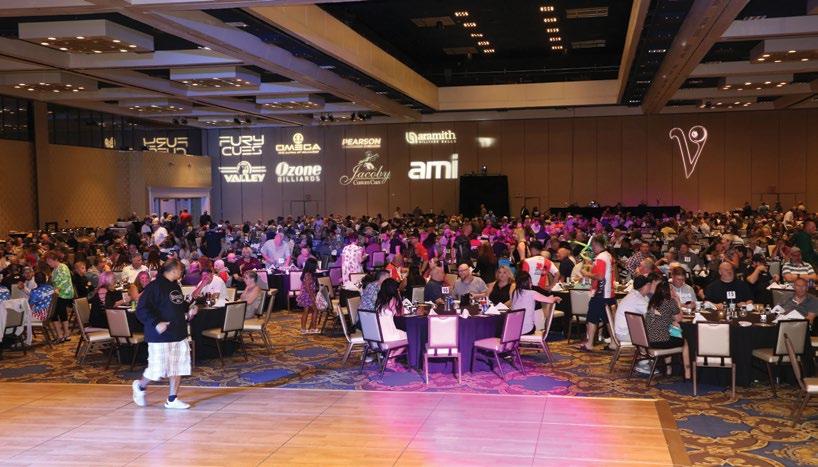
JUNIOR INSTRUCTIONAL PROGRAM
Creating Tomorrow’s Champions
THE BREAK AND RUN PREMIER JUNIOR INSTRUCTIONAL PROGRAM OFFERS:
ā Free coaching/instruction to youth nationwide.
ā On-going, individualized instruction tailored to junior players at all ages and skill levels.
ā Structured instruction at no cost to junior players who wish to play competitively.





ā Support to local coaches and instructors of players who are playing, or wish to play, at a competitive level.

ā Training materials, regular feedback and assessments of participant progress.
ā Regular instruction in person or via video exchange, such as Facetime or Skype interaction.










PBIA instructors associated with this program do so as a service to the PBIA and in furtherment of the sport. They receive no compensation for their participation. Each instructor has gone through extensive training and has a verified background check to participate.
If you are a junior player interested in this program, please email questions to rob@pbia-instructor.com.
In addition to state tournaments, the VNEA runs competitions in Canada, and some of the state tournaments pay out nicely for players who can’t make it to Vegas, according to Elliott. Additionally, many current pros have played in the league, including Shane Van Boening, who is sponsored by the VNEA.

There are five different divisions in Vegas, and players from any skill level can participate. People join the league by going to a local vendor.
“If there is a buyer that doesn’t have a vendor, they get the vendor in there, the vendor grows and gets more players and gets more locations and runs a nice event,” Elliott says. “We hand out awards on a weekly and annual basis, it’s all part of the sanction fee. There’s a magazine online, there’s about 30 different awards they can achieve for their weekly accomplishments.”
To qualify for the tournament in Vegas, all it takes is forming a team and playing throughout the season.
“If they play throughout the season, they qualify for Vegas,” Elliott says. “Anybody can go to Vegas, you don’t have to win –there’s a level for everyone, so it’s not just the winners who go to Vegas. Last place can go Vegas and play and enjoy the experience.”
Players also can find vendors through the VNEA website, www.vnea.com.
“They can go to the nearest league, and if we need to build an area somewhere, we’ll get a hold of the operators,” Elliott says. “Operators are joining each and every week.”
28 | BCA INSIDER • FALL ISSUE 2023
Thousands of products are just one phone call away. Managing multiple vendor relationships can be costly, frustrating, inefficient, and time consuming. Our goal is to be the best one-stop shopping source in the billiards industry. When you buy from CueStix, you have access to an enormous selection of products.
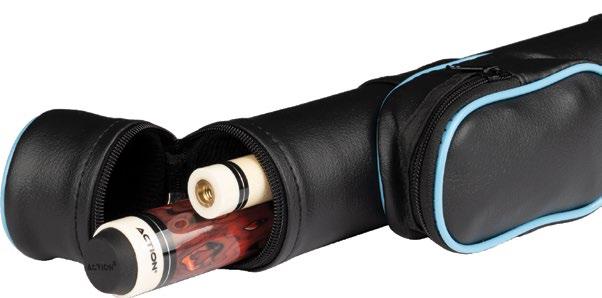

Exclusively for authorized dealers or visit CueStix.com to apply to be a dealer.

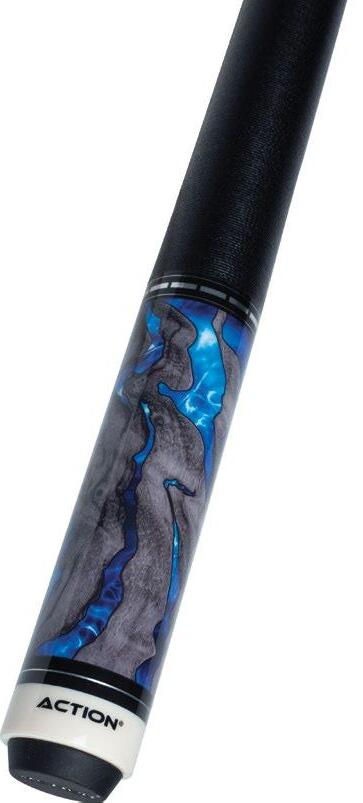

TO TABLE WE HAVE YOU COVERED
CUESPORTS INTERNATIONAL
CueSports International has two leagues in its portfolio – the BCA Pool League and USA Pool League.
“Currently, we have approximately 85,000 unique members in 13 countries,” says Ozzy Reynolds, CEO of CueSports International. “We believe this makes us the second-largest league organization in the world. Our growth has accelerated rapidly in the last two years and we are excited to continue that growth well into the future.”
The BCA Pool League was created in 1978 by the Billiard Congress of America as a means to unify independent leagues around the country. In 2004, the BCA decided to divest the league portion of its business and sold the BCA Pool League to CSI. The USA Pool League was created in 2011 to provide a less intimidating environment for the more recreational players. It also provides something that the BCA Pool League does not: protected territories.
The leagues run in all 50 U.S. states, plus Washington D.C., and 12 other countries.
“We pride ourselves on providing the best benefits at a low cost,” Reynolds says. “BCA Pool League players pay an annual membership fee of $20 and the USA Pool League players have no membership fee. There are league fees for each match that are set by local league managers. Those league fees are set to suit the local market and are primarily used to build prize funds for the players, including free trips to compete in Las Vegas.”
The largest events are the BCA Pool League World Championships and USA Pool League National Championships, and they are held alongside each other, along with several professional events, as part of the CueSports International Expo in Las Vegas.
“It is one of, if not the largest, pool extravaganza on earth,” Reynolds says. “It consumes 150,000 square feet of the Rio Hotel & Casino Convention Center, features more than 300 Predator Apex Premier League Edition pool tables, and showcases nearly 100 exhibitor booth spaces. Last year, it attracted approximately 7,000 players.”
State and regional events are currently held in Michigan, New Jersey, Ohio, Oklahoma, Oregon, Wisconsin, and Wyoming and it is always looking to add more.
“In 2022, with the help of our friends at Predator Group, we also launched the CSI Leagues Caribbean Championships in Puerto Rico,” Reynolds says. “That event is getting a lot of attention and we believe it will grow tremendously in 2023 and beyond.”
In the past, the BCA Pool League has tended to attract the more serious and competitive amateur players. However, that has been changing in recent years primarily because the BCA Pool League is now powered by FargoRate and BCA Pool League events now offer lower-skill level divisions.
“The USA Pool League was specifically designed to provide a less intimidating environment for the more social and recreational players,” Reynolds says.
He adds that the leagues are unique in a few ways.
“First, both leagues are powered by FargoRate. FargoRate has become the undisputed global standard for rating pool players,” Reynolds says. “Players of all skill levels, anywhere in the world, can now be rated on the same scale. No other rating system can do that. Our leagues get free access to the FargoRate League Management System (LMS) and its associated league scoring apps, at no charge. This allows all league data to automatically flow into FargoRate so that our players can always have the most accurate and up to date ratings, and FargoRate can be used to more accurately handicap league play if desired.”
Another unique aspect of the leagues is the events.
“We don’t simply conduct pool tournaments. We attempt to create an experience,” Reynolds says. “For example, in nearly all of our league events across the U.S., we also feature the US Pro Billiard Series, and even WPA-sanctioned World Championships, alongside the league events. This is something that no other league organization provides. Beyond rubbing elbows with the best players on the planet, we also focus on providing the best equipment, great ambience, and an overall exciting atmosphere.”
Finally, in 2021, a new tournament format called CSI Group Play, was discovered, which guarantees all teams to play a minimum of four to five matches. In the traditional double-elimination format, 25 percent of teams play only two matches and 50 percent play only three.
“After introducing CSI Group Play, participation in our events began to increase significantly, and post event surveys show that approximately 81 percent of participants love it,” Reynolds says.
The USA Pool League also provides the best odds of winning free trips to the USA Pool League National Championships. Approximately, one out of every 10 teams, win free trips to compete in Las Vegas.
30 | BCA INSIDER • FALL ISSUE 2023
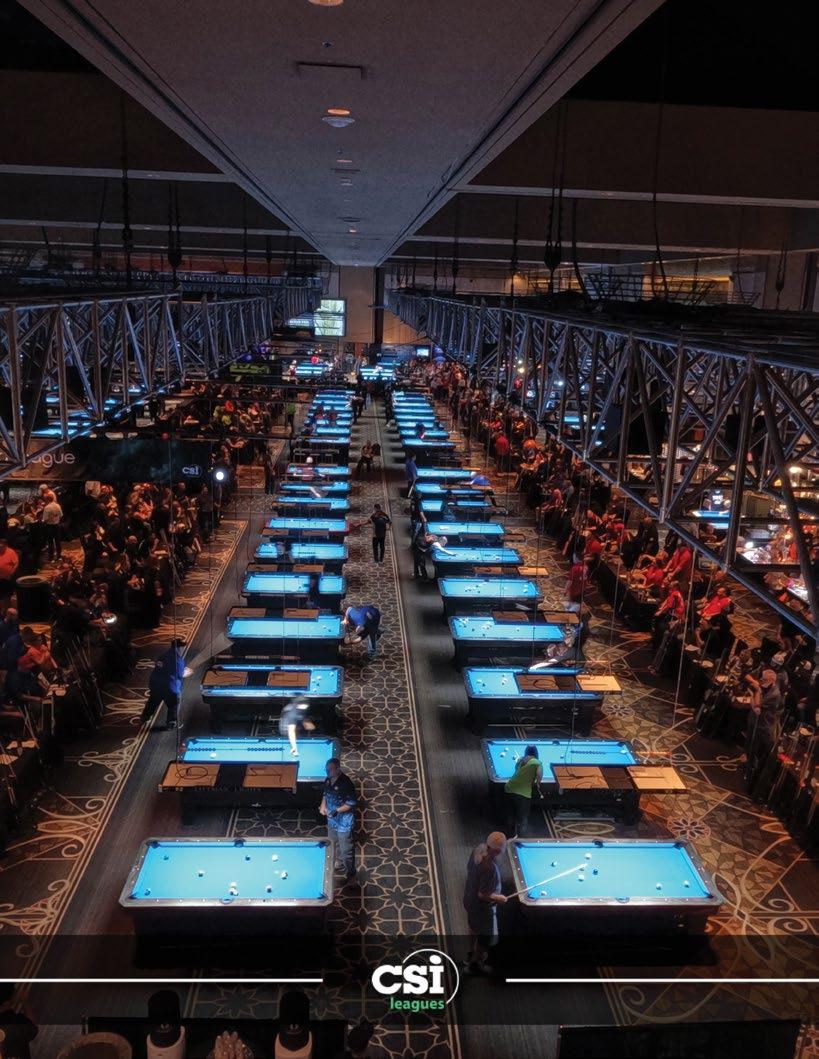
TAP
TAP, headquartered in Culpeper, Virginia, is the only national league that has a competition – The Rally Dream Team event –at the Super Billiard Expo. It also has its nationals in November each year, this year at the IP Casino in Biloxi.

“TAP is for casual to serious players,” says Sam Rullo, sales director of TAP. “Many pros have played in TAP before they turned pro. A few notables are Skyler Woodward, John Morra and Brittney Nelson.”
TAP was started by Loyd Schonter in 1989 and he started licensing areas out in 1996.
Currently, TAP has more than 130,000 members and players come from most of the 50 states and Canada. Yearly national membership dues are $20. Weekly dues vary depending on the area, though it’s usually from $6 to $10 per player.
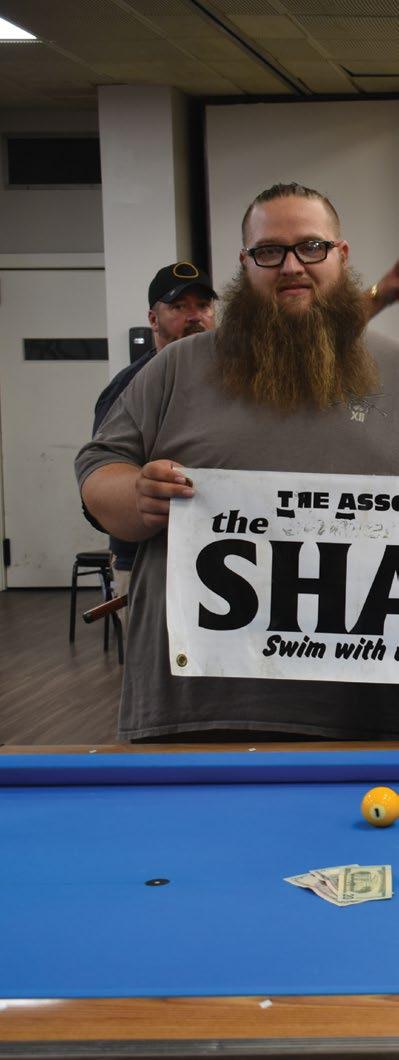
“What makes TAP unique from other leagues are our scorekeeping app, TAP the APP, our nationals being held in various locations every year, our call pocket format (no slop pool) and our round robin format at major events,” Rullo says. “TAP also has no minimum age limit restrictions.”
The benefits to members include better paybacks, very accurate handicapping with the Poolnet system, app scorekeeping where scores are processed and updated within seconds and a better overall league experience, Rullo notes.
32 | BCA INSIDER • FALL ISSUE 2023




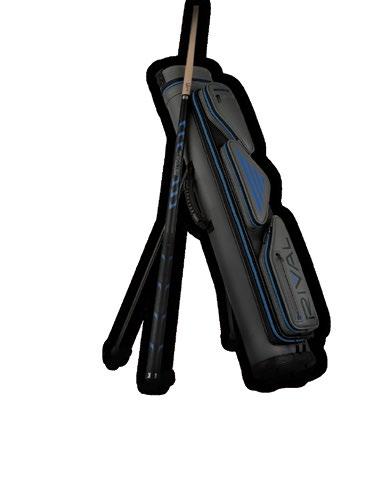

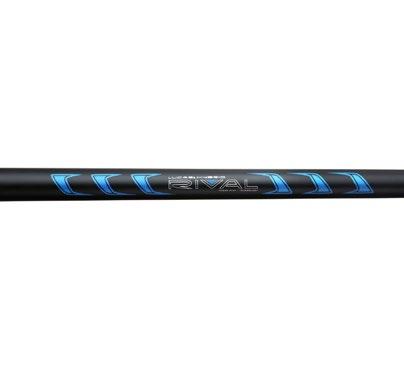
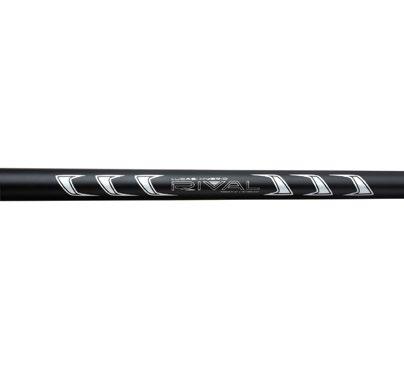
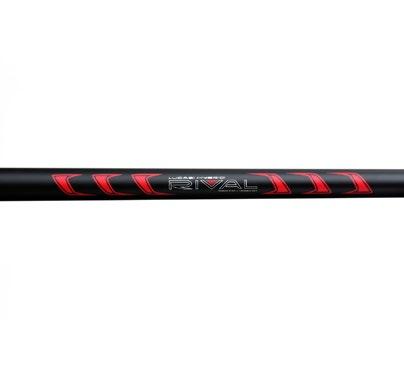

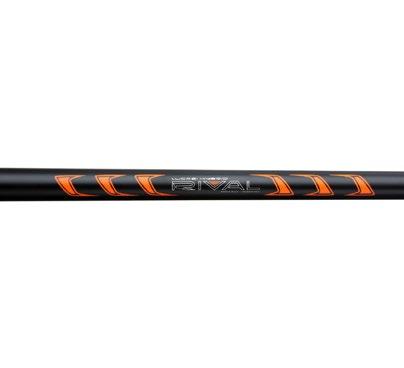
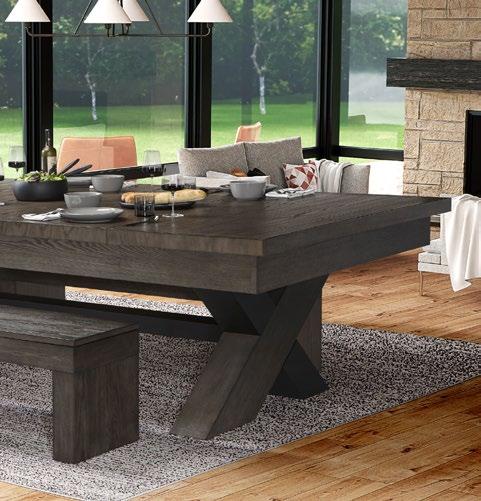
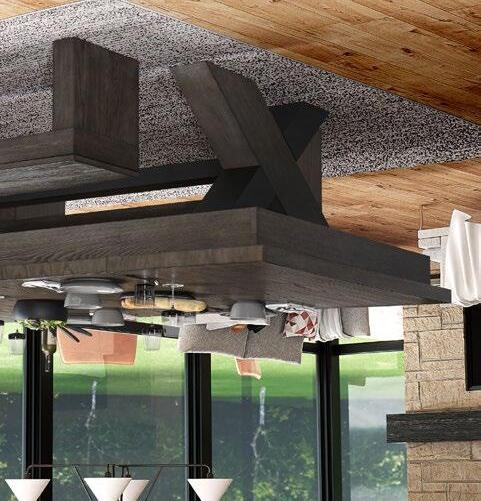

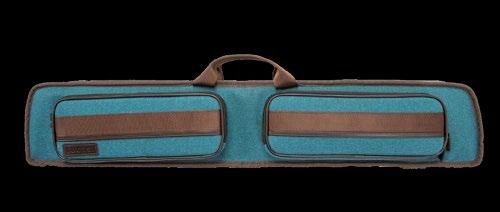
















HERITAGE WALL RACK LANAI OUTDOOR COLLECTION HALIFAX COLLECTION CUES & CASES CUES & CASES ANDOVER SHUFFLEBOARD






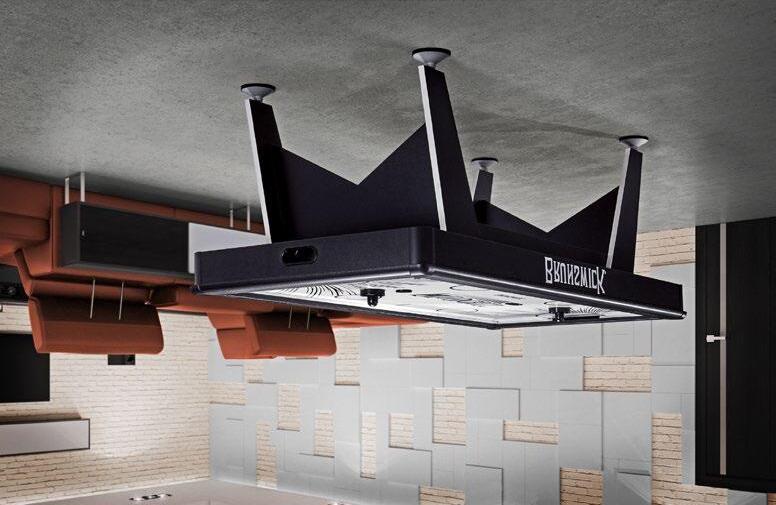

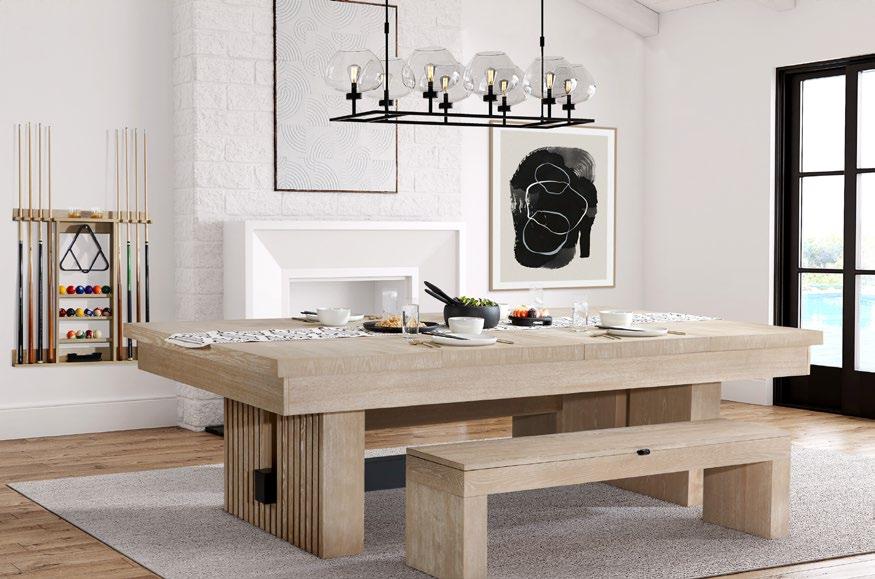







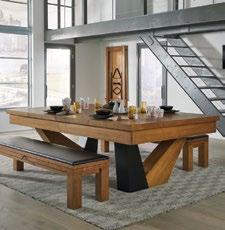



WINDCHILL AIR HOCKEY TABLE ONE-STOP SHOP YOUR FOR ALL YOUR BILLIARD NEEDS AMERICANHERITAGEBILLIARDS.COM BRUNSWICKBILLIARDS.COM CARBON FIBER SHAFT KIELWOOD SHAFT CUEANDCASE.COM VANCOUVER COLLECTION 800-835-7665
IOWA’S Sam Henderson
WINS 18U 10-BALL AND 22U 14.1 AT BEF JUNIOR NATIONALS
By Skip Maloney of AzBilliards
South Carolina’s Landon Hollingsworth traveled to Quincy, Illinois, about five hours south of Chicago between June 24-30, in pursuit of what was not exactly, but actually his fifth-straight BEF Junior National Championship title. It’s complicated.
Hollingsworth had won the 18U and 16U Boys 9-Ball divisions in 2021 and last year, though aged out of the 16U Boys division, he won his second 18U Boys 9-Ball title and laid claim to the Junior Nationals’ first 10-Ball title. In that sense, he was looking for his fifth. But along the way, he and others had established an unofficial sense that the title that “counted” (of course, they all count) was the one that was a qualifier for the World Junior Championships that generally follows the U.S. event by a few months.
In 2021 and last year, that title was awarded to Landon as winner of the 18U Boys 9-Ball event. This year, applying a European standard that’s been set for the 2023 Predator World Junior Championships, scheduled for October 19-22 in Klagenfurt, Austria, the World Qualifier in the USA became the 18U Boys 10-Ball event.
In that sense, Hollingsworth was after his third-straight “qualifier” title, or in common sports jargon, looking to threepeat. Though he had three chances at a fifth Junior National title this year, he had only one shot at winning the Junior Nationals’ World qualifying event for the third time. He’d been awarded his previous two titles in 9-Ball. This year, he was going to have to win it playing 10-Ball.
36 | BCA INSIDER • FALL ISSUE 2023
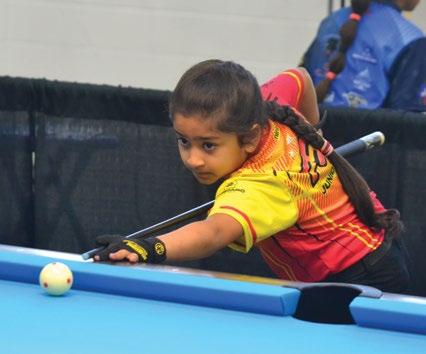
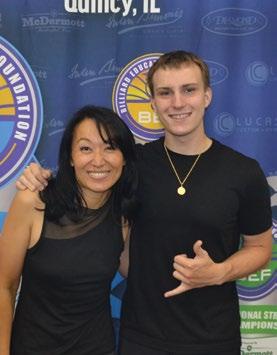
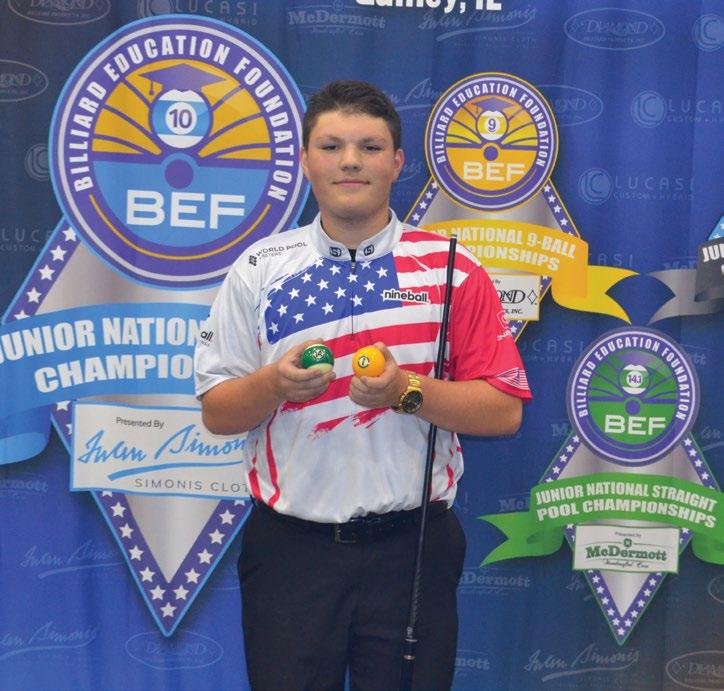
The junior competitor who spoiled Hollingsworth’s threepeat party, and as it turned out, his last shot at a fifth Junior National title, was Iowa’s Sam “Ryno” Henderson, who defeated him twice in the World qualifying 18U Boys 10-Ball event; once in the final round of the event’s double-elimination phase (8-5), which advanced eight to single-elimination and again, in the finals 8-4.
And that was after he’d defeated Hollingsworth in the fourth round of the 22U 14.1 tournament and Brent Worth had subsequently eliminated Hollingsworth in one of the tightest matches (50-48) in the entire 14.1 competition. Henderson advanced to win the 14.1 tournament, downing Joey Tate 75-29 in the finals and collecting the first of his two titles in one week.
Henderson did not face Hollingsworth in the mostly-Tuesday 22U Boys 8-Ball event, which drew the Junior Nationals’ largest field (48). Hollingsworth was eliminated from that event by Dakota’s Rylan Yoder. Henderson, who’d lost his opening round match in the 8-Ball event to Brent Worth, was later eliminated by North Carolina’s 14-year-old Jas Makhani, who’d go on to win the 14U Boys 9-Ball event (more on him in a bit).
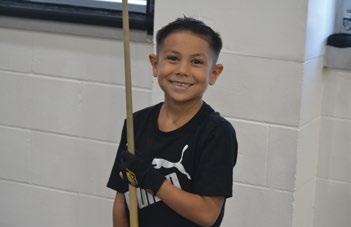
The 22U Boys 8-Ball title went to North Carolina’s Joey Tate. He’d go undefeated through the field, defeating players such
as Hank Leinen, Garrett Vaughan, Adrian Prasad, Payne McBride (double hill in the hot seat match) and in the finals, shutting out Rylan Yoder.
Henderson had seen the 18U Boys 10-Ball showdown against Hollingsworth coming. Pretty much everyone involved with the qualifying event knew about Hollingsworth’s desire for that third title-qualification to the Predator Junior World Championships. While the event title eluded him, his runner-up finish assured him of a spot among the eight who qualified for the World event.
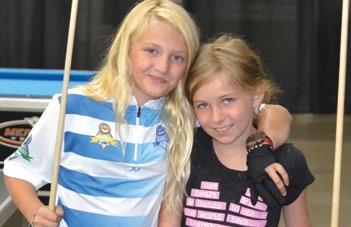

“Yeah,” said Henderson, in a Facebook reel posted by Window’s Open, after he’d claimed the title, “it definitely seemed like he really wanted to get that three-peat and I was like… well yeah, here we go.”
“I ended up playing OK,” he added.
Just OK?
“In the semifinals (against Hank Leinen and at) the beginning of the (final) match, I was just off,” he said. “It feels good. Better now. I’ve been working on dealing with the pressure and I guess it worked today.”
38 | BCA INSIDER • FALL ISSUE 2023
The new, now-twice Junior National Champion has a nickname. His middle name is “Ryne,” like former Chicago Cubs second baseman Ryne Sandberg, who was known as “Ryno.” Now, so is Sam Henderson. On his sponsor’s (McDermott Cues) website, his player profile notes that “when Sam is in a match and his opponent misses, Sam charges the table like a “rhino.”
“We get excited when we see the Ryno Charge,” it goes on to say, “because usually, it means he has a plan.”
He has a few, actually. A high school sophomore with a 9-foot Diamond table at home, Henderson maintains a schedule for pool competition by taking advantage of his Pleasant Valley High School’s Online Homeschooling Program, where he maintains status as an all-A/B student.
His goal when interviewed for the McDermott Cues sponsorship was “to be a professional pool player by the time he graduates from high school.”
THE OTHER GUYS
The eight competitors who qualified for the World Juniors event (the top four finishers in both the 18U and 16U 10-
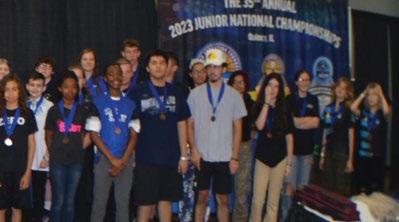
Ball tournaments) were all recognizable competitors on the Junior circuit that embraces the numerous qualifiers and one annual BEF Junior Nationals event and the ongoing Junior International Championship series of eight multi-division events.
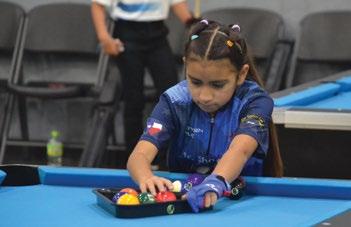
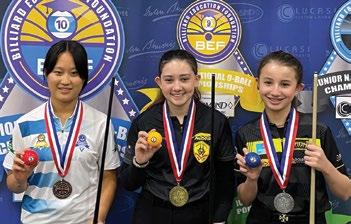
The two 10-Ball events produced eight qualified candidates for the World event though Hank Leinen, who finished among the final four in both qualifying events, will be unable to compete in both.
Notably absent among the qualifying eight was North Carolina’s Joey Tate, who has certainly been in the upper tier of junior competitors over the past few years and though he did not qualify for the World 10-Ball event (in his last year of eligibility), he did, with his win in the Junior Nationals 22U 8-Ball competition, qualify for that World 8-Ball event, happening at the same time that his two sisters will be competing in the World 10-Ball event. Tate was sent to the loss side by Hollingsworth in the 10-Ball event and eliminated on the loss side by Garrett Vaughan, who would go on to be among the seven who qualified for the World 10-Ball competition. Tate had already won the 8-Ball competition and finished as runner-up to Henderson in the 14.1 tournament.
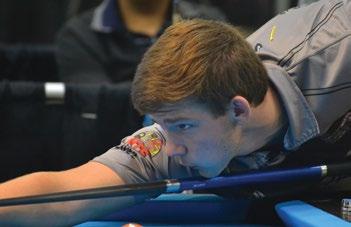
BCAINSIDER.COM | 39
California’s Adrian Prasad, who followed up his fifth to eighth place finish in the 18U 10-Ball event, claimed the top spot in the qualifying 16U 10-Ball event, downing Kentucky’s Hayden Ernst 6-1 in the finals. Ernst had defeated Hank Leinen 6-4 in the semifinals, while Prasad was working on a 6-1 victory over Jas Makhani.
“Overall,” wrote Prasad in a post-event Facebook post, “I am proud of the way I played and can only get better from there.”
“There is still a lot of work to get done and I will be working hard on my game for the next couple months to prepare for the Junior Worlds in Klagenfurt, Austria,” he added. “I am excited to be representing the USA at the Junior Worlds, alongside the most talented juniors in United States.”
Earlier in the week (Thursday), eventual 18U 10-Ball semifinalist, Jas Makhani, had been defeated by Ernst in the second round of the 14U Boys 9-Ball tournament. After completing a seven-match, loss-side winning streak that culminated in a 6-1, semifinal victory over D’Angelo “Jawz” Spain, Makhani turned for a rematch against Ernst, waiting for him in the hot seat.
Makhani won the rematch 7-4 to claim the 14U Boys 9-Ball title.
Other events “filling the cup” of the 2023 Junior Nationals yielded the following winners:
10U Boys/Girls 8-Ball (7 entrants)
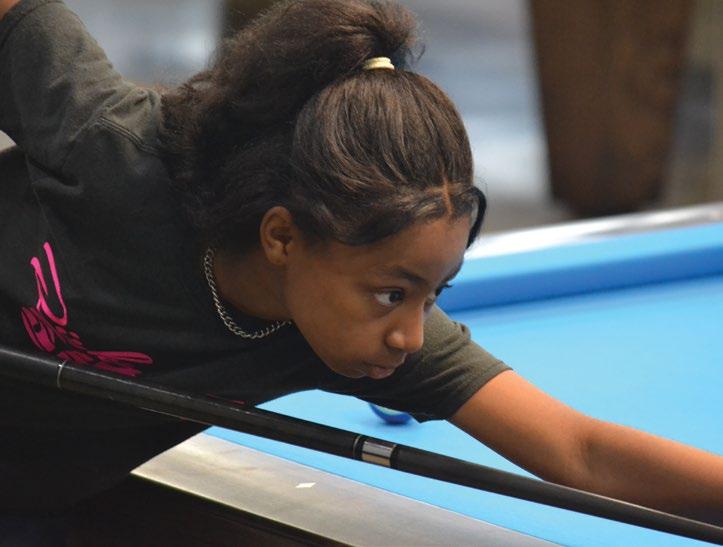
❱ 1st Dalton Nelson (WI)
❱ 2nd Donovan Seymour (CA)
❱ 3rd Addyson Ruiz (TX)
❱ 4th Stephen Bao (MA)
14U 10-Ball Mini (6 entrants)
❱ 1st Hayden Ernst (KY)
❱ 2nd Kaden Hillman (WI)
22U 10-Ball Mini (5 entrants)
❱ Jordan Witkin (IL)
❱ Ryan Stejskal (IL)
15U 8-Ball Scotch Doubles (8 teams)
❱ 1st Wyatt Andrist (MN) & Noel Montano (CO)
❱ 2nd Jas Makhani (NC) and Ezra Seymour (CA)
Billiard Congress of American CEO, Shane Tyree gave a big



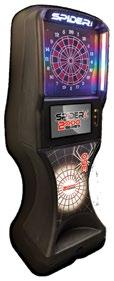



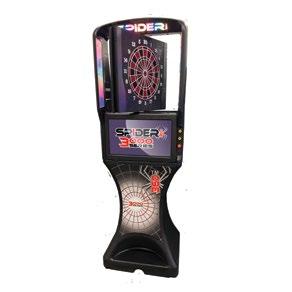









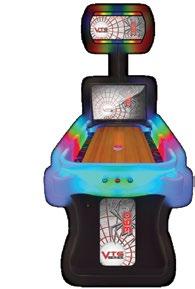






shout-out of thanks and appreciation to Chris Landwehr and his team with the Oakley Lindsay Civic Center in Quincy, Illinois for their hospitality, along with tournament director Cecil Messer, JulieAnn and Walt Wesley at the tournament desks, national event coordinator Carol LaRatta, the Billiards Education Foundation’s Board of Directors, referees Justin Ballou, Keith Hargrave, Scott Manuel and Dave Pierson, tournament volunteer Myriah Pierson, and live streaming/ podcasting by Collins Newley (with PostUp) and Molina Mike (with Doggin’ It).
NEVADA’S SAVANNAH EASTON AND FLORIDA’S SOFIA MAST TAKE ALL FIVE BEF JUNIOR NATIONAL GIRLS TITLES
Unless, for some reason or another, you’ve been out of touch with the billiard community recently, it shouldn’t come as a surprise that Savannah Easton (The Road Runner) and Sofia Mast (The Pink Dagger) won all five of the Girls titles at the 2023 BEF Junior Nationals at the Oakley-Lindsay Center.



They’ve been butting heads across a number of junior events for a couple of years now, culminating in this year’s Junior Nationals by facing each other three times in the finals of separate divisions. As a prelude to the story that follows, it should be noted that there are a number of national, notable and ongoing rivalries among many junior female competitors; rivalries between Easton, Mast, Skylar Hess, the Tate sisters (Bethany and Noelle), Courtney Hairfield, Jordan Helfery and Precilia Kinsley (et al) in any number of age-specific combinations.
Easton arrived to defend her 2022 Junior National 14U Girls 9-Ball and 8-Ball titles, accomplishing the former and finishing as runner-up to Sofia Mast in the latter. In addition to the Junior Nationals 14U Girls title (11 entrants), Easton also won the 18U Girls 10-Ball title (23 entrants) and the Junior Nationals’ premier 22U Girls 14.1, straight pool title (31 entrants).
Easton’s goal going into the 2023 Junior Nationals was to defend both of her titles and by winning the 18U Girls 10-Ball title, qualify for the World Juniors event, scheduled for Oct. 19-22 in Klagenfurt, Austria; an event that has changed its core game to 10-Ball. Two out of three ain’t bad, as they say. Easton defended the one title and after winning the 10-Ball title, was nominated to join 10 other Junior National competitors in Austria.


“I am very excited to have exceeded my expectations, defending one of my titles and winning the 18U 10-Ball World Qualifier, along with the first (Junior National) 14.1 Straight Pool title,” she said. “It means a lot to me to progress in just one year of time.”
The 23-entrant, 18U Girls event was executed in two phases; a double-elimination, first phase that whittled the field down to a final eight, four from each side of the bracket and a single-elimination phase that brought it to a conclusion. You may recognize some of the key competitors in this narrative. Easton had defeated Mast 6-3 in the third and final round of the double-elimination phase. Easton, Kennedy Meyman, and the two Tate sisters (Bethany and Noelle) advanced to the final bracket from the winners’ side. Mast, Hess, Helfery and Avah Weems advanced from the loss side.
Meyman executed a double-hill win over Mast in the first single-elimination round and was then eliminated by Bethany Tate 6-3 in the semifinals. Easton, in the meantime, downed Helfery and in the semifinals, Noelle Tate, both 6-4, to join Bethany in the finals. Through six matches in the two phases, Easton would give up an average of only two racks per game; that average ending up low, when, in the double-elimination phase, she shut out her first two opponents and gave up only three racks to Mast. She would go on to give up four each in the first two matches of single-elimination to Jordan Helfery and Noelle Tate. She gave up only one rack to Bethany Tate in the finals to claim the title and in effect, punch her ticket to Austria.
“I was very determined to win in the finals,” Easton said. “I knew Bethany was a strong player. I needed to bring my A game and stay focused.
“To be able to represent our country is an honor on its own,” she added, “and if I were fortunate enough to win my first world junior title in the near future, it will be the biggest stepping stone in my career as a pool player; to move forward in the future and make my country proud.”
Easton’s battle to defend her 2022, 14U Girls 9-Ball title went through Jordan Helfery, twice. Upon arrival to compete for the hot seat, Easton had yet to give up a single rack, shutting out her first two opponents. She gave up one rack to Helfery to claim the hot seat. Helfery downed Noelle Tate 6-4 in the semifinals and Easton shut her out in the finals to successfully defend her title.
The BEF Junior Nationals’ premier 14.1 straight pool competition drew the largest field (31) of all the girls events. By the time, the numbers had dwindled down to six, the list of usual suspects was all that was left; Easton faced Helfery in one of the winners’ side semifinals while Mast and Bethany Tate squared off in the other one. Kennedy Meyman and Precilia Kinsley awaited the results on the loss side.


To that point, in races to 50, the winners’ side matches had been yielding an estimated, winning point differential of between 20 and 25 balls. With some exceptions, like the Tate and Skylar Hess winners’ side quarterfinal that finished with Tate ahead by 10, 50-40. The two winners’ side semifinals, yielded point differentials of 7 and 8 balls; Mast downing Tate 50-43 and Easton defeating Helfery 50-42.
After what was, according to Easton, a difficult start to her week, she was “catching a gear.”
“When I first arrived, I was struggling with the humidity, time-zone change and the long traveling,” she said. “After a couple of better nights rest and good breakfasts, I started to warm up to the conditions.”
Not good news for those who had to face her during and after her participation in Wednesday’s 14.1 competition. She finished the event by defeating Mast 50-35 to claim the hot seat and when Mast returned from a 25-18 victory over Bethany Tate in the semifinals, defeated her a second time, 25-6 to claim the Junior Nationals’ first 14:1 title.
44 | BCA INSIDER • FALL ISSUE 2023

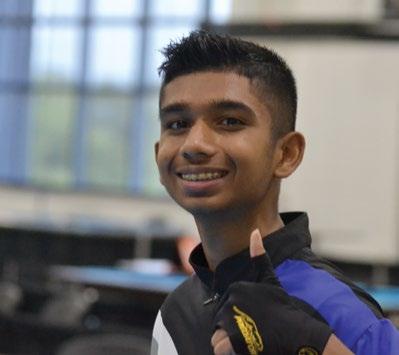
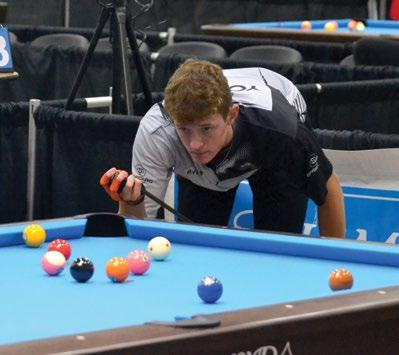
By all accounts (their own and those who spend time with them), the two girls are situational friends. They have certainly spent a lot of quality time together, battling back and forth at a pool table in a variety of locations all over the country.
Away from the tables, they don’t get much of an opportunity to hang out. Their respective homes (Florida and Las Vegas) being some 2,300 miles apart. But you’d never know it from watching them at the tables. Their camaraderie is evident. Their quiet interactions in a game/match are cordial and comfortable; no grim faces or any sign that they’re playing in any kind of consequential event. Their determination and skill underlies a respect and enjoyment of each other’s company (occasionally interrupted by the task at hand), which, in a way, makes their competitive battles a joy to watch.
They met at the 22U Girls 8-Ball event that got underway on Tuesday, July 25 when, according to Easton, she was still adjusting to the atmosphere, literal and figurative.
Easton lost her second match in a double-hill battle against Marissa Du, who would go on to win a second-straight double-hill battle, against Jordan Helfery, and advance to the hot seat match. Mast, in the meantime, was cruising, giving up two total racks to her first three opponents, one of which she gave up to Bethany Tate in a winners’ side semifinal to face Du in the hot seat match. Mast gave up another rack to Du claiming the hot seat.
Easton, in the meantime, in races to four, had set out on a five-match, loss-side winning streak that had eventually eliminated, in order, Bethany Tate (0), Precilia Kinsley (1) and in the semifinals, Du 4-1; the atmospheric adjustment apparently well underway. The Pink Dagger though, struck quickly and decisively in the finals, giving up just a single rack to Easton and claiming her first 2023 Junior National title.
They met again in the finals of the short-field (9 entrants) 16U Girls 9-Ball event. Mast won five straight matches to claim the title. She gave up a total of only five racks through 41 games; 1 in the opener against Avah Weems, none at all to Jordan Helfery and Massachusetts’ Darragh O’Connor. In the hot seat match, she gave up only two to Easton. Easton downed Skylar Hess 7-5 in the semifinals before giving up two more in the finals to Mast who claimed the title 8-2.
Mast will not be joining those who qualified for the World Junior Nationals in October. She’d been among the final eight in the qualifying 18U Girls 10-Ball division, but lost, double hill, to Kennedy Meyman in the opening round of the event’s single elimination phase. She is most definitely not a teenager who dwells on the past (an early, important lesson in any competitive sport).
“It was crushing,” she admitted of her loss in the 10-Ball competition, “but I’m happy with my other finishes. I played in four events, winning two of them and runner-up in a third.”
Mast was on the hill at 5-2 against Meyman, who rallied to win the match.
“I think I played really well the whole week,” said Mast, “so I’m proud of my performance, but the pressure of how much the qualifying tournament meant to me got to me and at the end of that match, my nerves took over and I just couldn’t finish.
“I was shaking even before that match started,” she added, “and needing just one more game and one more ball, I lost focus and momentum and let it slip away.”
Mast offered congratulations to all of the qualifying competitors and Meyman in particular, because she “deserves her spot and my respect for not giving up.”
“Go show the world what the U.S. can do,” she told all of the qualifying competitors headed for Austria in October.
Easton and Mast won all five Junior National girls titles and met in the finals of three of them. In their private lives, neither has yet to enter high school, though they are both looking at the potential for long and productive careers playing pool. Whether they will maintain their interest and skills to make it a primary career remains to be seen. Alternative careers are possible, but at their age, the existence of at least one career that demonstrates such extraordinary potential is rare, remarkable and a demonstration of two amazing young women with at least one extraordinary talent.

46 | BCA INSIDER • FALL ISSUE 2023
Want to host a BEF Qualifier, BEF State Championship, or donate to the BEF player travel fund? Contact us today at (303) 926-1039. The
is a non-profit, tax-exempt
under Section 501(c)(3)
the Internal
Billiard Education
charitable organization
of
Revenue Code and is a registered Non-Profit Organization in Colora-
do. Donations are tax deductible as allowed by law.
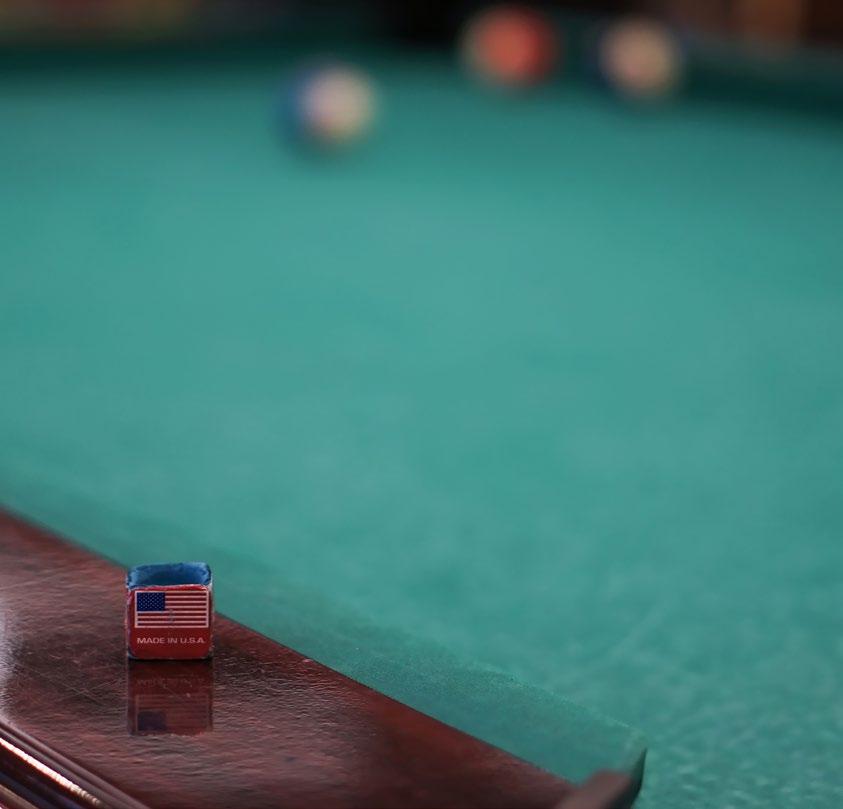
There is only one Master. Often Imitated, Never Duplicated.
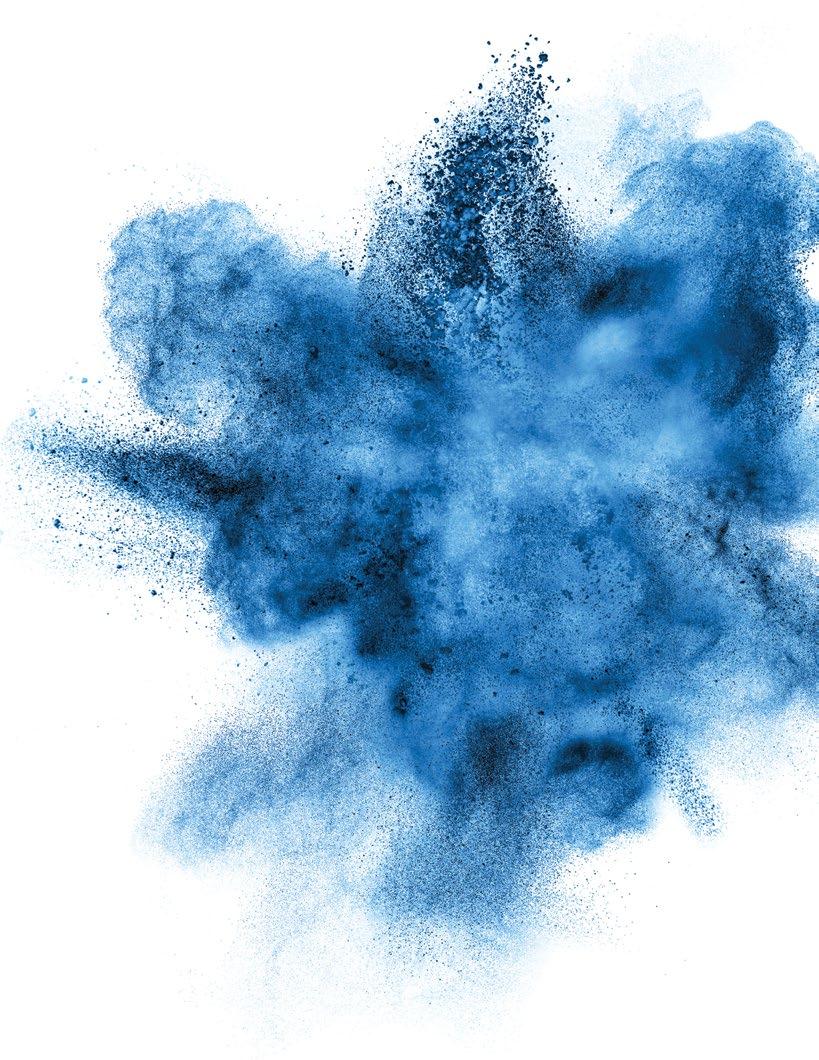

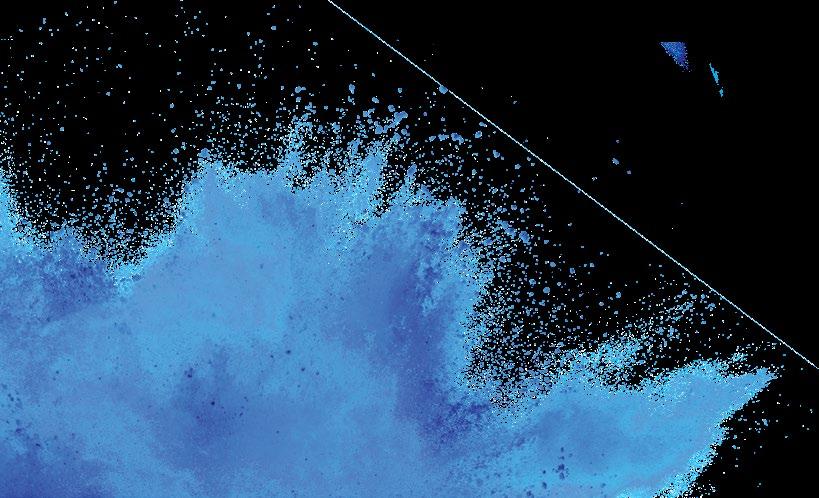
Get to Know KELLY FISHER
By Keith Loria
Kelly Fisher is arguably the most dominant woman billiards player of the last two decades.

Born in West Yorkshire, England, the 44-year-old Fisher started in cue sports playing ladies professional snooker, something her upbringing prepared her for well.
“My parents ran a pub, and in that pub was a snooker table so I’ve been told that when I was very young, I would sneak in to the room even though I wasn’t allowed, and my dad would get me a crate to stand on, and I would throw the balls around,” Fisher says. “Later, my parents bought a pub outright, and in that pub was an English pool table, so I would play a lot.”
In her house, her parents would eventually get her a snooker table and billiard table in her own playroom, so she was always playing and practicing.
“It got to the point where I was challenging the customers for a pound a game, and I saved up 500 pounds in a glass bottle,” Fisher says.
Her dad hired a local snooker coach to improve her game more, even though at first he thought she was too young. But after watching Fisher play, he immediately went to work with the youngster, with three lessons a week after school.
“By the age of 14, I was the No. 1 junior in the women’s league, and was also doing really well in the boy’s league,” Fisher says. “I won my first major event at 15 and from there, I didn’t stay on at school, and decided to do this full time.”
It didn’t take long for Fisher to leave her mark on the sport, capturing five world titles between 1998 and 2003 –her first at the age of 19.
In 2003, the tobacco sponsorship in the UK got banned and the snooker tour collapsed. With no real experience in anything else, Fisher couldn’t find a job and decided to move across the pond to try her skill in the Women’s Professional Billiard Association Classic Tour. Her parents gave her $700 and five suitcases and there were no guarantees.
“My goal was to be a professional and earn money from pool, but I didn’t know for sure I would be,” she says.
Not surprisingly, she didn’t miss a beat, quickly ascending to a Top 10 ranking, despite not even having her own cue for her tournament.
“The ultimate key for me was doing well in snooker and being a world champion, so when I came to pool, I automatically had some confidence because the shot-making was relatively easy at that point,” she says. “I must say that the more you learn about pool, the shot-making becomes harder because you understand more about the reactions. When I first came, I didn’t have a clue about spins.”
Thankfully, it was an easy transition because the competitors were very friendly and welcoming when she first came to the U.S.
“It was absolutely fantastic,” Fisher says. “I couldn’t have felt more welcome by all the players and the WPBA. Everywhere I went, it was a very warm feeling. I knew a lot of people before I arrived from the snooker circuit. We had spent a lot of time together back in the day, so it was nice to see the familiar faces.”
The more she played and studied the game, the more she adapted to ensure her shot selection became more advanced.
“The things I needed to adapt to, which were very difficult, were jumping and breaking,” Fisher says. “Jumping didn’t seem natural to me, and for breaking,

BCAINSIDER.COM | 49
in snooker, it’s a defensive break. Even still, I don’t feel like I’m the best jump er or breaker out there and I do feel I can improve on that a lot.”

In 2005, Fisher won her first WPBA title in San Diego, and she collected five more event wins over the next two years. In 2008, she reached the No. 1 ranking, winning three more WPBA ti tles over the next two years.
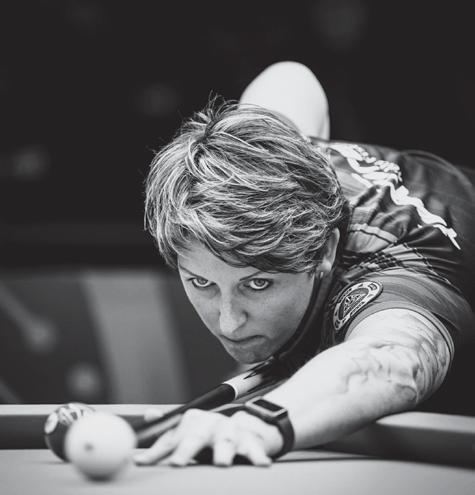
“Before San Diego, I had done quite well in a few events and I remember thinking that I could win one of these,” she says. “I didn’t expect it to happen so quickly. It was the most money I had won in one tournament – I think it was $14,000 – where in snooker it was smaller money. And I remember the nervous feeling I had in winning that title.”
She also captured her first World Pool-Billiard Association world title in 2011, when she won the World 10Ball Championship. A year later, Fisher claimed the World 9-Ball Championship in China, an accomplishment she would repeat in 2019.
On the international stage, Fisher won
Last year, Fisher added a Gold Medal to her list of accomplishments, winning the nine-ball competition at the 2022 World Games.
The legendary player has seen her share of adversity during the years off the table. In 2014, Fisher was forced to undergo heart surgery. A year later she underwent a double mastectomy. Still,
when Fisher returned to tournament play, she remained at the top of her game, recording victory after victory.
In 2020, Fisher was inducted into the Billiard Congress of America’s Hall of Fame in its Greatest Players wing, an honor that she’s deeply proud of.

“We don’t have a Hall of Fame in the UK, and I remember when I first got to American learning about it and wondering if I ever one day had a chance,” she says. “Bear in mind, I came from snooker and hadn’t done anything at that point, but it was definitely an ambition I had. That truly was a dream come true.”
It was a goal she had wanted since she first started in the game. At the beginning of each year, she would sit down with her father and come up with a list of what she hoped to accomplish – and most of the time, she did!
For instance, at the start of 2012, Fisher told her dad she wanted to win the
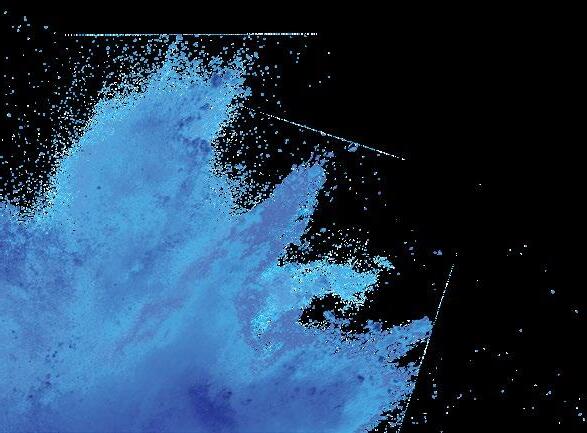
CHAMPIONSHIPS2024 JUNIOR NATIONAL
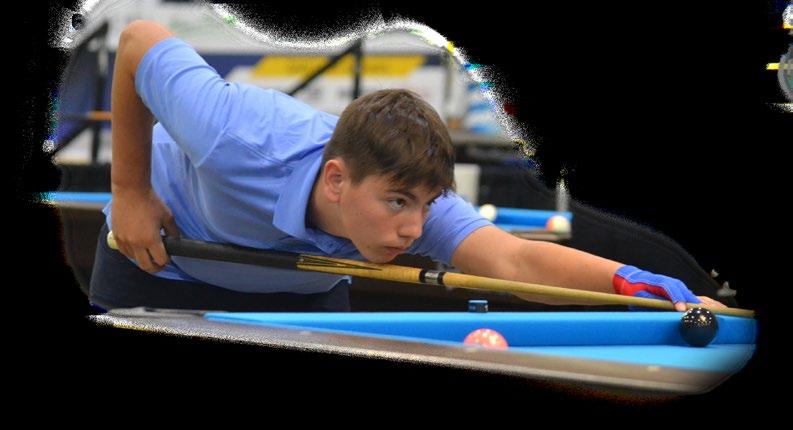

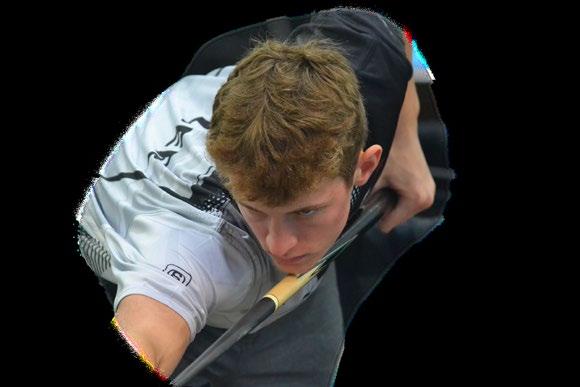
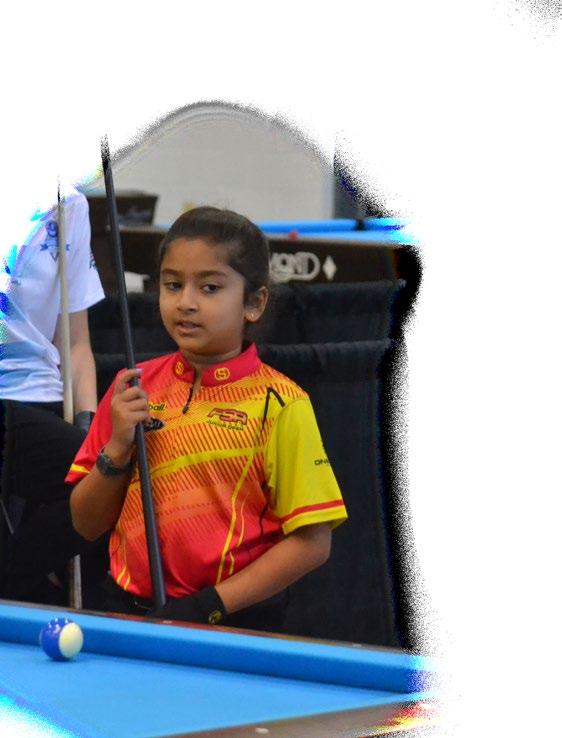
More events & activities will be announced soon!








July 8-13, 2024 | Quincy,
IL Save the Date:
World 9, one of the championships that had alluded her. That came true when she took down Chinese star Fu Xiaofang in the finals of the World 9 and became the only woman to ever hold the World 9-ball and World 10-ball Championships at the same time.
She would get just one more chance to create her goals with her dad, as he would pass away in early 2013.
“I was so grateful he got to see me achieve all my goals. We sat together, and I know he was a very proud father and died a proud man,” Fisher says. “He was my best friend and would travel everywhere with me when I was younger, devoting his life to helping me obtain my dreams. He made me want to go after everything and be the best I could be.”
Today, Fisher calls Dumfries, Scotland home and runs a pool hall there.
“To be honest with you, I don’t know how it’s still going because we have had obstacle after obstacle – starting with COVID, where in the UK, it was much stricter for businesses and we were closed for almost two years. We would open for two-week periods and get shut down again. We survived the pandemic but then in December, we got flooded and had to shut for three months. But we are open and keeping its head above water, and if no other obstacles come in the way, it’s a great little business.”
Not that she’s given up competing. Fisher still travels and competes around the world and is still looking to add more titles to her already impressive resume.
One thing she’d like to do is win an 8-ball championship, though there’s currently no American title.
“I am beginning to play Chinese 8-ball, but it’s a tough task, because during the
pandemic, the Chinese game blew up and all the Chinese players are playing 8-ball now, so I am way behind,” Fisher says. “But, I am going to turn my hand and try to do so. If I could get a world championship win, that would be a great way to cap off my championships.”
She also hopes to win another 9-ball or 10-ball world championship – and shares that’s a goal that will always be on her list.
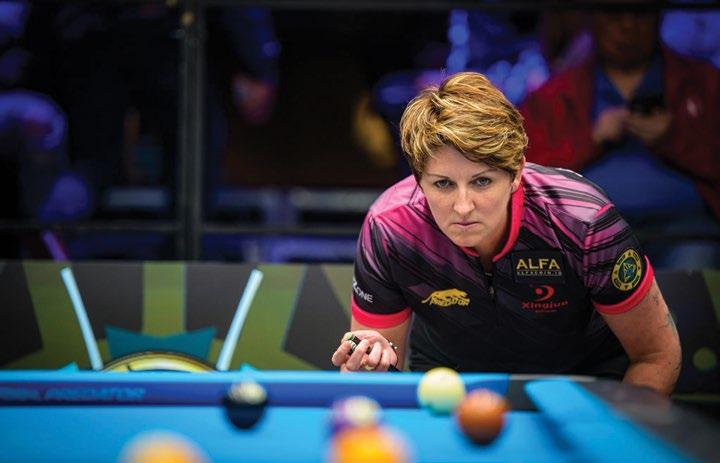
“It’s something you are not completely satisfied with, you always want another one,” Fisher says. “Ultimately my goal is, in my own self, that I win at least one event a year. When I don’t for three years in a row, then I know it will be time to quit.”
But from what we see on the tables, where Fisher is still playing at a high level and winning events, that time doesn’t seem like it’s going to be anytime soon.
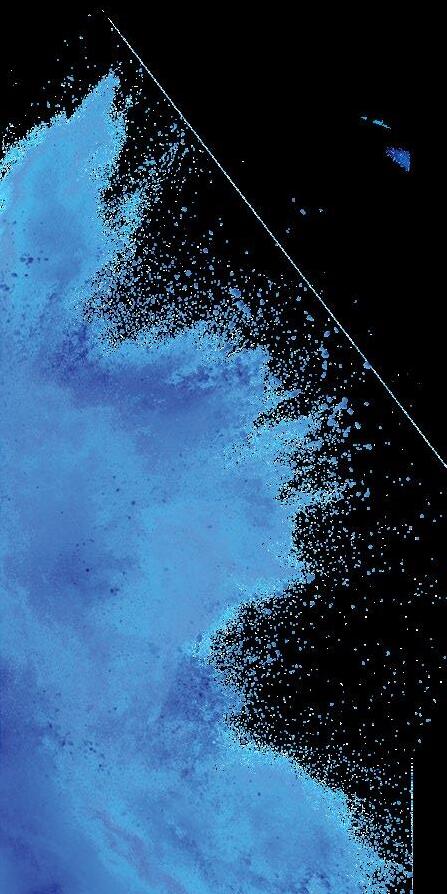

Connect With Us Contact Marc Godinez to learn more 480.772.6656 marcos.godinez@fiserv.com © 2023 Fiserv, Inc. or its affiliates. Fiserv is a trademark of Fiserv, Inc., registered or used in the United States and foreign countries, and may or may not be registered in your country. All trademarks, service marks and trade names referenced in this material are the property of their respective owners. Build your business with Fiserv Streamline Payment Acceptance and Elevate Payment Experiences
Payments From credit, debit, and checks to contactless cards and mobile wallets, we help you accept payments seamlessly, however and wherever your customers want to pay. Acquiring Solutions | Contactless Point-of-Sale (POS) | Global Currency Solutions Electronic Check Acceptance Drive More Sales Encourage interested shoppers to become purchasers by breaking down their barriers to buying, whether it’s in-store or online. Split Payments | Gift Cards | Insights & Analytics Reduce Cost Increase your transaction approval rates and offset credit processing fees to help lower your payment costs. Surcharging | Interchange Optimization Authorization Optimization Secure Commerce Help protect customer information and reduce fraud losses without compromising your customer experience. Remove sensitive data from your environment to help reduce PCI compliance scope. Chargeback Management Security & Fraud Tools
Operations Streamline B2B payment processes and business management tasks with digital tools to improve overall efficiency and back -office operations.
Payments Electronic Invoice Presentment & Payment Customer Payment Portal Electronic Payroll Delivery Digital Disbursements Corporate Incentive Disbursements
Accept
Digitize
B2B
One-on-One with OSCAR DOMINGUEZ
By Keith Loria
As the son of professional pool player Ernesto Dominguez, Oscar Dominguez has been involved in the billiard world since he was born.
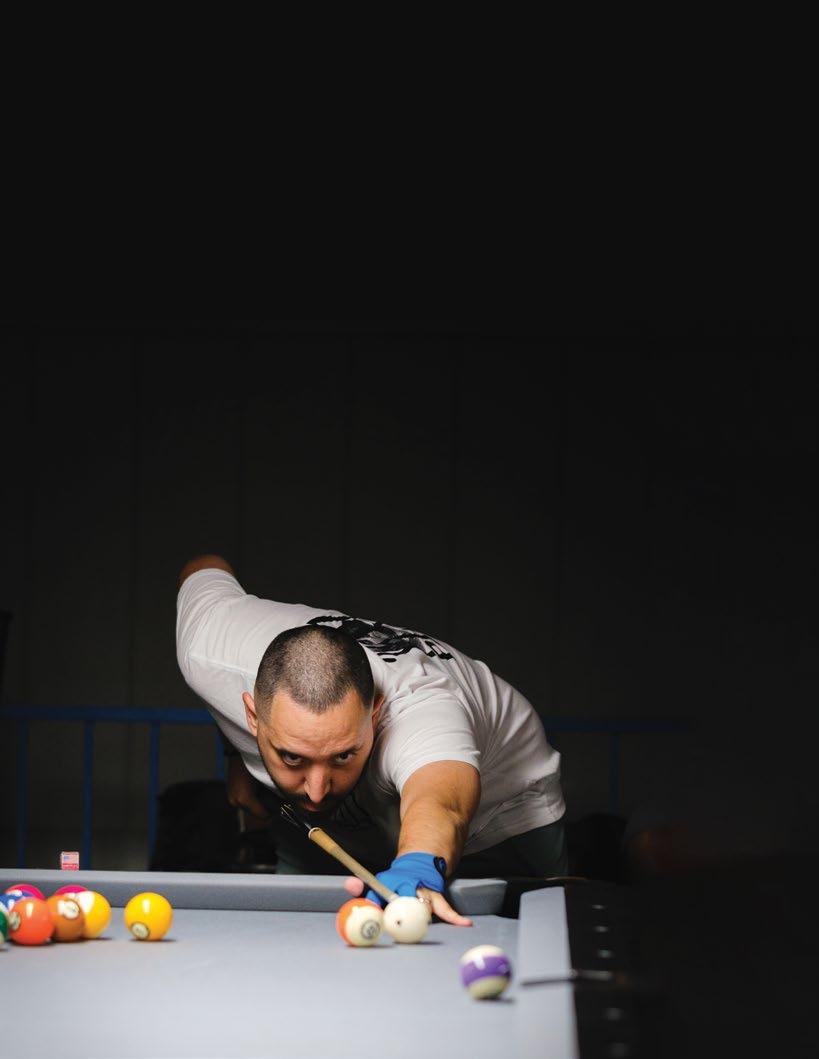
Although he found a love for playing later than most, Oscar quickly dominated in his matches thanks to the advice and guidance of his dad. Within five years of playing in tournaments, he found himself among the hottest young talents in the nation, topping the U.S. rankings and earning a spot on the 2009 Mosconi Cup team at age 24.
Now 38, Dominguez continues to be a force in tournaments and strives to return to the Mosconi Cup.
But it’s not just as a player where the younger Dominguez has found success. He also runs a successful pool room and retail shop out of Sacramento and along with his wife, started their own tour.
BCA Insider spoke with Dominguez about both his playing and business career in an exclusive one-on-one.
How did you get involved in the billiard industry?
I started by fixing pool tables with my dad as a kid. Obviously, he played so I got to watch a lot of great pool at an early age. When my dad opened a pool room when I was 16, I was working there most days after school and during the summer. That’s when I got the idea of maybe owning my own room one day.
Tell me about the pool room you run.
It was started by the Markulis family who opened it in 1997 and my wife and I purchased it from them. I’ve known them most of my life and they’ve been amazing mentors. Hard Times has 33 tables, a full kitchen and 14,000 square feet of pool player heaven. I’ve always wanted to own a room, but once we had our first child, I knew we needed more stability than playing could provide and wanted to put down roots. It was an easy choice to purchase Hard Times because it’s iconic in the area and we have great mentors in the Markulis family.
What are the keys to success in running a pool room?
Having really solid leadership for the staff has been monumental. We’ve had our core staff for years now and it shines through. We also try to keep the place as spotless
as possible and I think players and regular customers really notice that. Having me as a serious player and my wife as a non-serious player really gives us a view from both angles. What works for the general public won’t always work for the players and vice versa. We discuss a lot of things and always try to find something that works for both.
When was the retail shop opened and again, why was this a venture you wanted to be involved in?
The retail shop was opened during the pandemic because we needed to find a way to stay busy and bring in in-
come when our pool room was closed down. This venture makes sense for me. I love cues and know probably too much about them. I really enjoy teaching people about the technology out there and see them get excited to play with new equipment.
I know your dad was a player – did you always want to follow in his footsteps? When did you get the bug?

I didn’t want to follow in his footsteps until I was about 17. I was an avid basketball player and wanted to pursue that, but I stopped growing at 5-foot-9 and I realized that the NBA wasn’t an
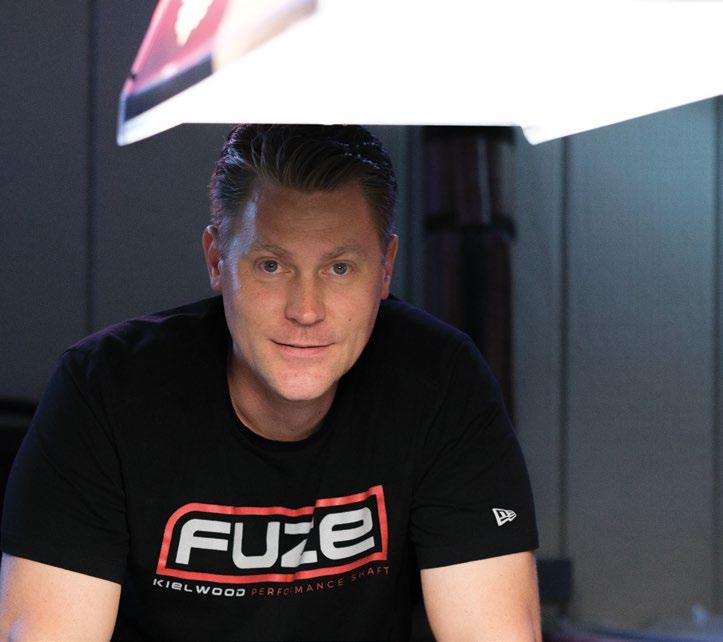
option. It was then I started really getting into pool and began practicing and training with my dad.
What do you consider your top memories as a player?
Mosconi Cup. Each time I’ve been on the team has been special in its own way. Winning the Turning Stone Classic is special because it was my first major win.
Getting second place at the Beijing Open just because of the sheer amount of talent in that field was overwhelming. I played some really great matches and I definitely didn’t have a good draw.
Traveling with my dad, all over the world doing something we both love. Those memories are priceless. What is it about the game that you love?
I’m addicted to the challenge always needing to improve. The players today push each other in ways like never before. Players like Sky, SVB, Filler, Ruiz. They are always getting better and it makes me want to work harder and get better too. There’s something memorizing about playing the game really well and competing at the highest level.
What are your goals for the year ahead? What would you like to accomplish?
Reaching 800 Fargo is my personal goal and obviously to make the Mosconi Cup Team. I’ve never played in London, only the U.S. I’m really behind in the points right now, as I’ve taken some time off this first half of the year. Hoping to have a stellar run at the back half of the points events coming up.
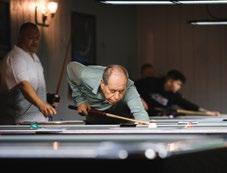
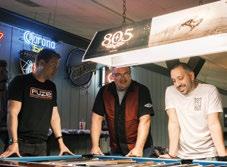
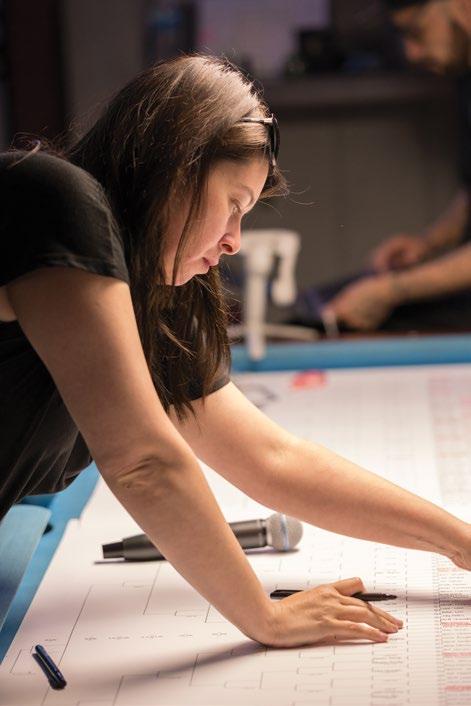
Where do you see yourself in five years both as a player and businessman?
As a player, I don’t know what the future holds. I think I’ll still be actively competing and hopefully still holding my own. As a businessman, location number two, three, etc., is always the goal. My wife and I are also looking to bring back our highly successful regional tour, so be on the lookout for that soon.

56 | BCA INSIDER • FALL ISSUE 2023

Jam Up Apparel
SUCCEEDS BY CREATING PERFECT CLOTHES FOR POOL PLAYERS
By Anthony Stoeckert
Damian Pongpanik knows pool, and he knows sales, so it only makes sense that he would combine his two passions and build a successful business. But even he didn’t expect his company, Jam Up Apparel, to become as big as it has, as quickly as it has.
Jam Up got its start when Pongpanik, a lifelong pool player who competes professionally, decided he wanted to take his tremendous success in sales in a new direction.
“Throughout my career, I always made other companies very successful. Then, I told myself, ‘I’d love to be able do this for myself, and be able to do this in pool,’” Pongpanik says. “I’ve been playing pool my entire life and I’m pretty well connected in the industry from knowing players.”
So in 2017, Damian and his wife, Mindy, a graphic designer, started talking about designing shirts for pool players. He thought of the name, Jam Up, because he and a friend would talk about how certain players play a “jam up” style. Mindy came up with design concepts and a logo, and the couple developed their first run of jerseys.
“I thought they were great at the time; looking back, I think they’re terrible now,” Pongpanik says with a laugh. “But we did a run of about 50 jerseys in different colors and different logos and took them to a tournament. I sold out of them in about 30 minutes. A lot of that was my salesmanship and my reputation. And I thought, ‘Wow, I’ve got something here.’”
Damian and Mindy decided to launch an elevated brand and they designed jerseys and polos, which they brought to a Western BCA regional event in Lincoln City, Oregon. A well-established apparel company was also at that tournament, which drew about 3,000 players, and Pongpanik notes he outsold that well-known brand by 10-to-one.
“By the end of that tournament, everyone in that room was wearing Jam Up,” he says. “I took about 400, 500 pieces with me, and sold just about all of them. I was like, ‘Wow this is really impressive.’”
58 | BCA INSIDER • FALL ISSUE 2023
BUILDING ON SUCCESS
That experience encouraged Pongpanik to keep going, so he consulted with some fellow players on the pro circuit, like Oscar Dominguez and Justin Bergman.

“I used to travel around with those guys, and they helped us get our name out there nationally, through Facebook, and we just started to slowly grow,” Pongpanik says. “I think our first full year, we did about $85,000 in sales, which is nothing to write home about, but I was ecstatic about it. Then the following year, we continued to grow, this was 2019, and I was thinking, ‘How do we take this business to the next level? How do we become more than a jersey company and actually create something for ourselves?’”
He conducted some market research, and saw that there was just one other company making jerseys specifically for pool players.
“They were new to the market, and they didn’t really understand pool players,” Pongpanik says. “Pool jerseys were a relatively new thing, and I thought, ‘We should do this.’”
THE CLOTHES MAKE THE COMPANY
Pongpanik wanted full control over the design of his shirts and how they represent the people who wear them. He delved into research and found a factory that could partner with a company like Jam Up, which was still relatively small.
A major step for Jam Up came in late 2018 and early 2019 when it started making shirts through dye sublimation, which Pongpanik describes as a process in which an entire design is dyed into fabric, as opposed to screen-printing, in which shirts are made by manufacturers, and which he says is limiting.
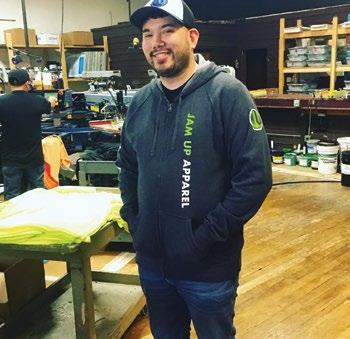
“Basically, we take all the different components of the shirt – the sleeves, the body, the color, the placket – all of those components are individually laid out onto a digital artboard,” he explains. “We design the design for each one of those individual pieces, and it’s printed out on a life-sized piece of special transfer paper. That transfer paper is laid down on top of white fabric and pressed with heat into that fabric and the heat releases all of the dyes.”
The result is that the design has been dyed into the fabric. The individual pieces are then cut and sewed together, resulting in what Pongpanik describes as a “perfect” product.
“It really took us to that next level because we were able to offer truly unique designs that were us – it wasn’t a jersey or polo design that you just throw your logo or design on,”
| 59
“
…I REALLY BELIEVE IN TAKING CARE OF THE CUSTOMER.”
Pongpanik says. “We were able to really develop our own brand and our own identity. That was really, really important to me. One of the things that I’ve always said from when I’ve started is, ‘I don’t believe in just following the lead of other people. We have to innovate, we have to continue to improve, and we have to differentiate ourselves from other people.’ Otherwise we’re no different and why would anybody buy from us? Because they like me? That’s not good enough.
“I would put our quality up against anybody in the billiards industry or in most any other industry as well,” he says.
Building Jam Up hasn’t been easy, but Pongpanik isn’t one to back away from a challenge. Getting so involved in the manufacturing end of the business came with a learning curve. For example, one thing he had to figure out was how to have most of his products made in America.
“I really do believe in preserving as many jobs here in America as possible, and the other reason is, is that I’m a pool player and I understand pool players are going to tournaments,” he says. “People need jerseys, people need shirts for themselves. Having the risk of jerseys not getting to the customer in time because it has to cross over the ocean or has to cross over a border in order to get to the customer is not a risk that I wanted to take.”
A COMMITMENT TO EXCELLENCE
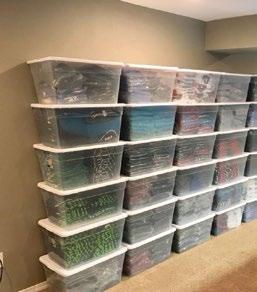
Jam Up was having more success than even Pongpanik imagined, but that doesn’t mean the Jam Up story hasn’t faced some hurdles. It isn’t hard to do the math and realize that a company which launched in 2017 and started to make significant progress in 2018 and 2019 ran into the COVID-19 pandemic.
“COVID hits, and essentially all of our business shut down, 100 percent,” Pongpanik says. “We went from doing however much a day in sales to zero. We had a lot of orders that were halfway through production that that were just dead stock.”
It was terrible timing for a growing business, but Pongpanik had established an excellent relationship with the factory he partnered with, and that partnership paid off. The people running the factory reached out to him with a proposal: If they manufactured masks, which were in short supply at the start of the pandemic, the factory would be deemed essential and could get back to work. They asked Pongpanik if he wanted to make masks to sell to the general public.
“I said, ‘Absolutely.’ So we designed a bunch of masks and started making them,” he says. “I’ve never seen business come in so fast, because instead of just selling to pool players, I opened up our Facebook ads to the general public.”
He sold about $750,000 worth of masks, at $12 each, in about three months.
“That’s a lot of masks,” he says.
And even though the pandemic and mask mandates are behind us, Jam Up is still reaping the benefits from that chapter in history, as it allowed Jam Up to create relationships that continue to this day.

“It was huge for us and we did really well there,” he says. “It opened up the doors for us to sell things outside of pool. It created this whole client base of businesses who reached out to us to say, ‘Hey, we want to do custom masks for our brand –what can you do for us?’ We have hundreds of business clients who knew nothing about Jam Up Apparel before that. They reached out to us do their custom masks, and we’re still doing business with them on custom apparel.”
BUILDING ON THE BRAND
The experience taught Pongpanik that businesses need branding, and that his company offered those businesses a fantastic branding opportunity.

“We have no limitations on designs,” he says. “We can get as creative or as simple as a company wants to meet a brand. Our design team is so good at bringing people’s visions to life that we have developed this whole network of repeat customers who are ordering clothing for their company, for their employees, for their staff.”
Pongpanik is quick to note that he did not build Jam Up by himself, and gives full credit to his team, which includes Jam Up’s vice president Grant Zemp; Mindy Pongpanik as creative director; Stephanie Toy, who leads product development, manager Mickayla Zieske; Kaycee Hould, who leads customer service, and Catherine Colosia, who contributes her talents as a graphic designer.
Pongpanik’s business now essentially has two components: the branding arm, known as Jump Up Business Solutions, and Jam Up Apparel, which focuses on sports. In addition to pool, Jam Up Apparel also sells clothing for bowling, golf and fishing, but pool remains the biggest aspect of the sports business, by far.
“I would say that we are probably the market leader when it comes to custom billiards apparel,” Pongpanik says. “I don’t think anybody sells more or has a larger client base than us in that particular market. And one of the things that we do so well in pool is creating people’s custom jerseys and being able to put people’s names on there, put their team logos on there, or whatever the case may be. And we offer people the ability to do all of that online at our website.”
PERFECT FITS FOR POOL PLAYERS
When it comes to Jam Up’s sporting apparel, Pongpanik says pool is the clear leader, with 90 percent of its sporting apparel customers being pool players.
“Our approach is basically creating clothing that helps you perform better,” he says. “I’ve chosen fabrics and fits that are engineered and designed specifically for pool players and people who play sports like pool. So it has mobility; it has breathability; and it has athletic properties to it. You can play all day long and you won’t stink. You can stretch over the table and it moves with you, instead of constricting. Those are the aspects that make our products so great.”
Another hallmark of the company’s clothes is the design element.
“We have probably 50 or 100 different base designs that you can pick from, but you can personalize every single one of them,” Pongpanik says. “You can take any one of our designs out there and add your name to it. You can take any one of our designs out there and add logos to it. And you can look
just like the guys who are playing in the Mosconi Cup. That’s a really big thing for us there, people love that.”
BUILDING PARTNERSHIPS
A key element of Jam Up’s remarkable success came in 2022, when it partnered with Predator.
“We became the official apparel partner for Predator globally,” Pongpanik says. “All of Predator’s jerseys are made by Jam Up Apparel. We ship those all over the world, and we offer people the ability to buy Predator apparel and have it customized.”
While Jam Up’s clothing is sold primarily through its website, some major pool retailers sell its apparel, and several pool halls across the U.S. and Canada sell Jam Up products in their pro shops.
The company’s clothing is also popular among leagues.
“We work with lots of individual leagues, and we are the official team wear partner for CueSports International,” Pongpanik says. “When their players are coming to them asking about jerseys, they send those players to us.”
Pongpanik says last year was huge for Jam Up’s growth, and 2023 had already surpassed 2022’s numbers, just halfway through the year.
“I think our partnerships play a key role in that, with just driving awareness,” he says. “More people are wearing our brand now, and they just love it. We have a lot of diehard customers who just love our brand.”
Pongpanik and his team are dedicated to doing what they say they are going to do, and he himself admits that there are occasional stumbles.
“I’m not perfect, but I really believe in taking care of the customer,” Pongpanik says. “I have lost money on more deals than I can count because I wanted to make sure the customer is taken care of. The little profit we make off a shirt, I have lost that in shipping several times, because I wanted to make sure it reached the customer in time for their event. Whether or not that’s the best business model, it’s the approach that I take. I want to make sure people get their shirts and feel good when they’re competing. And those customers are going to come back to us.”
That is the kind of approach that has made Jam Up a big success, and a company that is here for the long haul.
BCAINSIDER.COM | 61

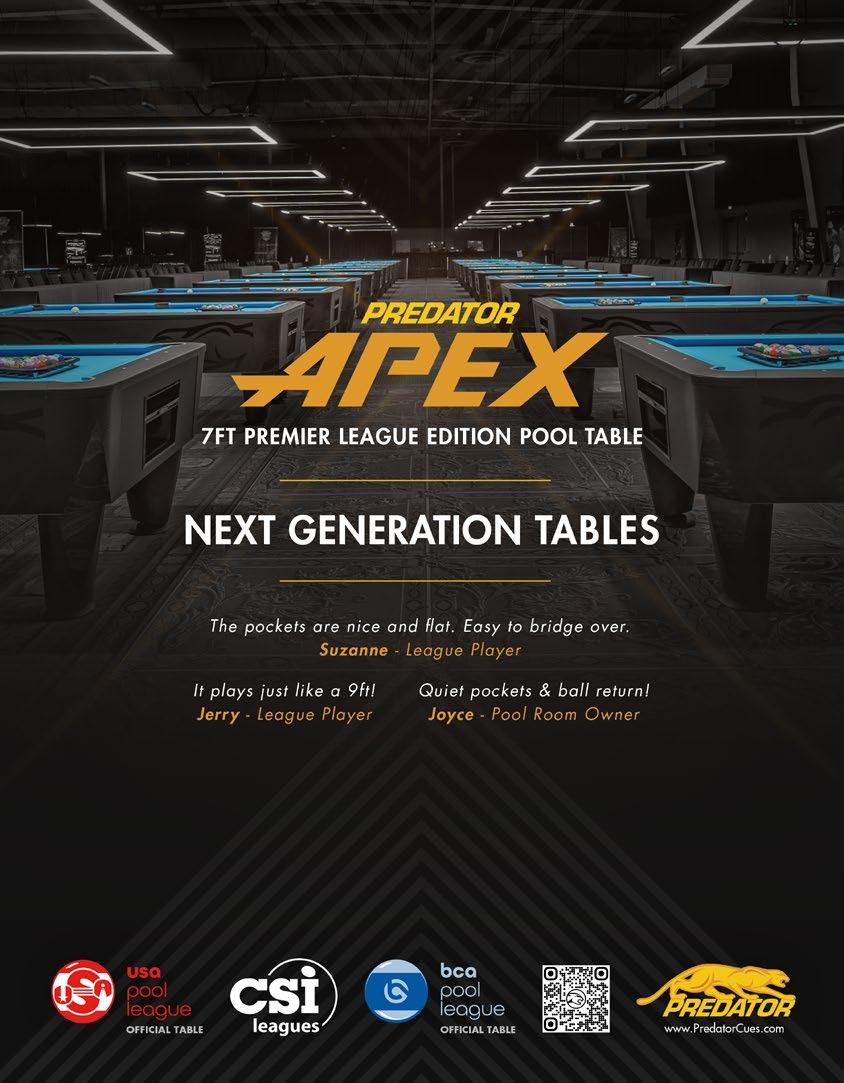
Joe Pechauer HONORED WITH PRESIDENT’S AWARD
 By Anthony Stoeckert
By Anthony Stoeckert
Each year, the Billiard Congress of America bestows its President’s Award on an individual who has made a positive impact on the industry and has gone above and beyond for its betterment. This year’s honoree, Joe Pechauer, is a most deserving recipient, but that doesn’t mean he expected to win the prestigious accolade. In fact, Pechauer says it was completely unexpected.
“It was a total surprise,” he says. “To be considered alongside the great leaders in the industry was beyond my expectations.”
Pechauer is the owner of J. Pechauer Custom Cues, based in Green Bay, Wisconsin, and which is respected as one of the finest makers of custom cues. The company was founded by Joe’s father, Jerry, who got started in the business by repairing cues and later opened a retail store before shifting his focus to custom cues. It’s a craft that both Pechauers take seriously.
“Always striving for perfection is really how we started out, and that forced us to do everything that has to do with our process in-house,” Pechauer says.
Joe and Jerry still drive many hours to select logs and talk with loggers to find the best birdseye and curly maple available. The creation of each cue starts when logs are cut in the shop and dried in their own vacuum kiln.
“The only way that we can ensure the quality of what we do is to be in charge of all those different aspects of the materials,” Pechauer says.
In addition to his brilliant craftsmanship, Pechauer is being recognized for his support of young pool enthusiasts from around the world through sponsorships that provide players with all the equipment they need to compete in events and majors.
“We’ll give them a jump, a break, a playing cue, a case if they need it,” Pechauer
says. “Anytime they need something, we try to be there and help them out.”
J. Pechauer Custom Cues also spreads the word of these young players’ achievements through social media.
“Sponsoring junior players and watching them through their journeys, whether or not they become a top player, it’s all about being part of their journey and watching them grow in the sport,” Pechauer says. “I would say that’s one of the big things that keeps me motivated in the sport. I would rather help
64 | BCA INSIDER • FALL ISSUE 2023
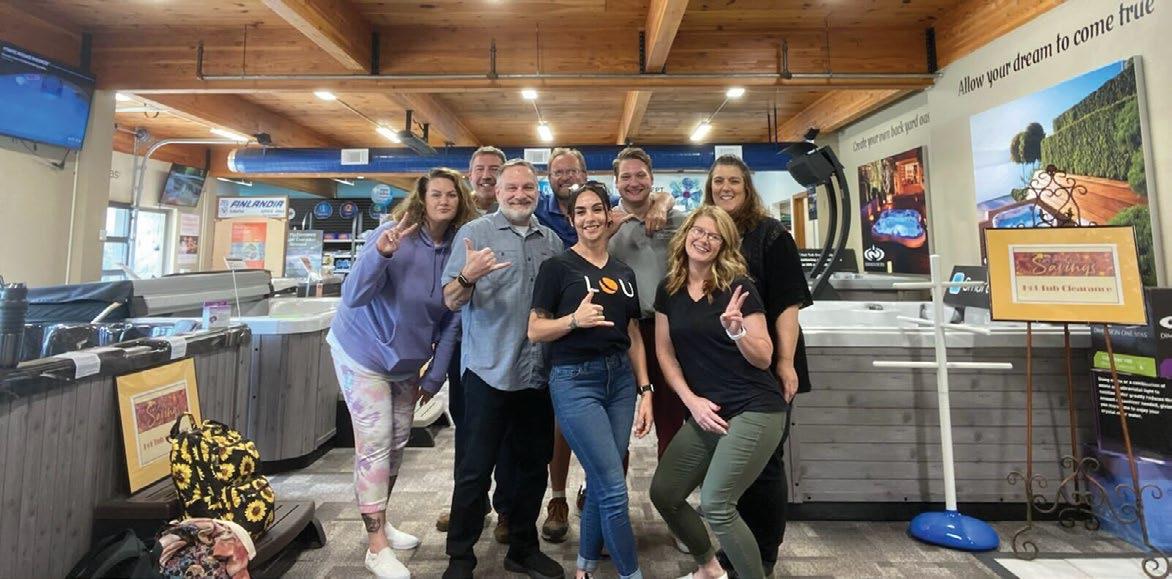


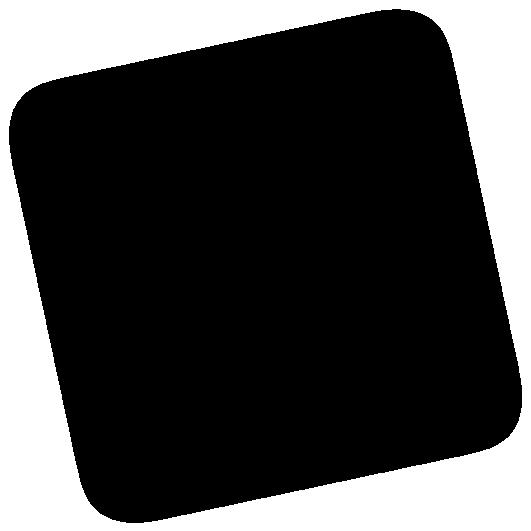

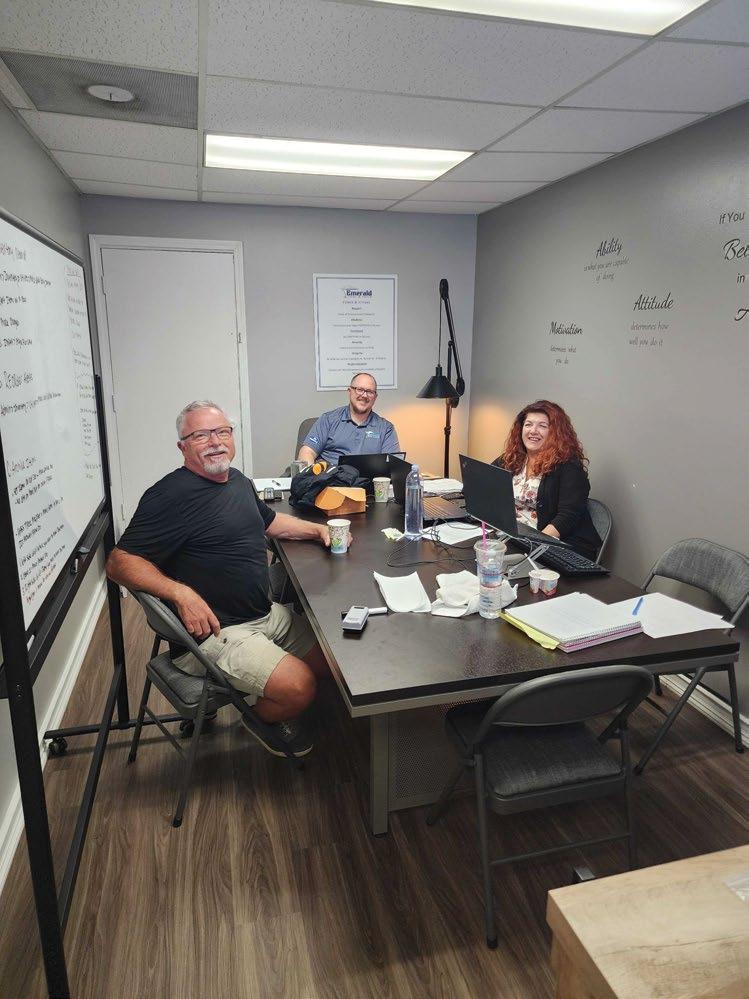

out the young players in their entrance to the sport, because they are the ones who need that help.”
“We want them to be well-rounded, meaning they get good grades in school, and we want someone who is just a good, upstanding individual,” Pechauer says.
Pechauer is also happy to see other companies support more Juniors.
“It’s made other companies aware because they’ve seen how successful we have been supporting these players and what comes out of that,” he says. “They’re following our trail and I think that’s great, because the Juniors are the ones who ultimately win out.”
In addition to being extraordinary cues for playing, Pechauer’s cues are also
award-winning in design and have won several Cue of the Year awards.
Design is one characteristic where his company’s teamwork comes into play. “It’s truly a collaborative effort involving both myself and a dedicated team comprising of our shop members and sales team,” Pechauer says. “We work together and bounce ideas around. One of us comes up with something, and then someone else adds an idea. When you look at how a cue comes together, it’s taking in the ideas of people, and by the end of it, we have something amazing.”
Pechauer and his team work on each cue for as long as they possibly can and are known to push deadlines to their limits in pursuit of creating the perfect cue.
“The reason is because when we finish up prototypes, there’s always that one
more thing we can do to make it really complete, and that’s what I find myself doing – that next little change to make it really a knockout,” he says. “That’s what makes it fun.”
J. Pechauer Custom Cues is celebrating its 60th anniversary this year, and it is a company that is steeped in tradition while embracing the evolving nature of the sport.
“As the sport evolves, we evolve with it,” Pechauer says. “We try to listen to the needs of our players and adjust our products accordingly. For instance, we considered the increasing importance of breaking and safeties in the game and how jumping balls has become more popular. This observation led to the development of break and jump cues. Likewise, due to higher demand for accuracy and the increased competitive nature of the game, we have accommodated the changing field with new low-deflection and carbon shafts.”
Reflecting on the past and what both father and son have dedicated their lives to, Joe Pechauer acknowledges the legacy that started with Jerry and continues through him, and he is committed to maintaining the company’s reputation for unwavering quality.
And he has given some thought to the company’s future beyond his contributions.
“There will be something beyond, but I don’t know what that looks like yet,” he says. “And until then, I’ll just keep working.”
The global pool community celebrates Joe Pechauer’s well-deserved recognition with the President’s Award, knowing that his unwavering support for junior players and his exceptional craftsmanship have left an indelible mark on the industry.

66 | BCA INSIDER • FALL ISSUE 2023
www.californiahouse.com
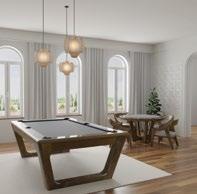
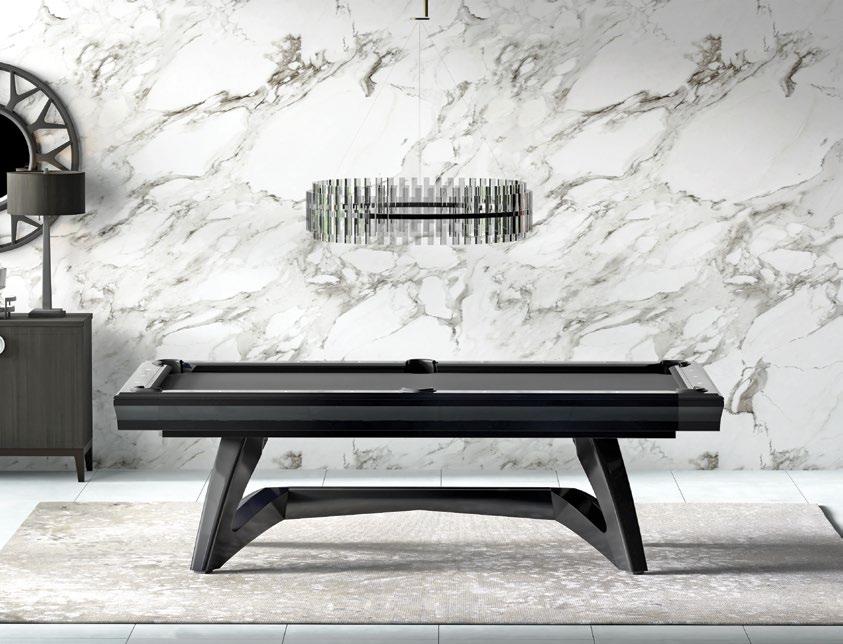




Complete line of game room furniture, made to order in the USA. Pool Tables . Game Tables . Shu eboard Tables . Game Chairs & Barstools

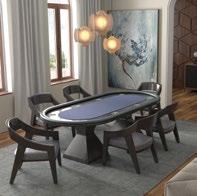
Why?
For starters, the simple-yetunique design allows you to determine the shape of your tip, lifting the leather fibers without removing the surface of your tip.
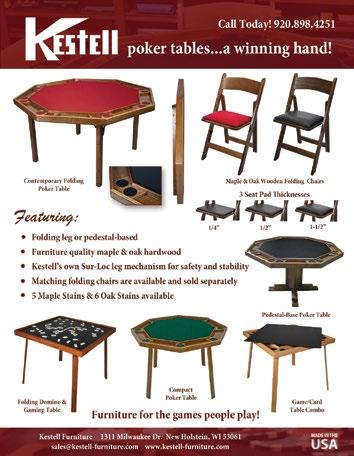
And the lifetime guaranteed grit means you’ll never have to buy a new one.

The Brad Scuffer. Often imitated. Never duplicated.

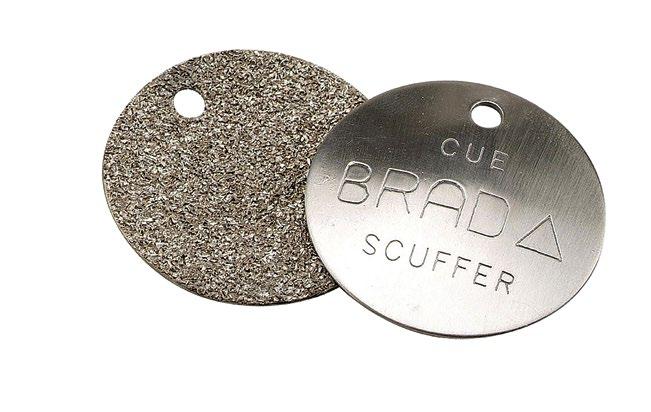
T HE F I RS T … A N D T HE L A S T !
only is the Brad Cue Scuffer the original tip
but it is the last tip tool you’ll ever need. $19 95 L ifet i m e G u a r a n te e I N TE RN A TI ONA L B ILL IARD S Ho u st o n , Tex a s • BRAD@ i nt lbi l lia r d s . c o m • 713 - 869 - 323 7 Call Today for Dealer Pricing! CREATIVE IDEAS to DESIGN YOUR …brochures …catalogues …ads & more julie.snee@gmail.com juliesnee.design
Not
tool,
CARBON FIBER BREAK CUE
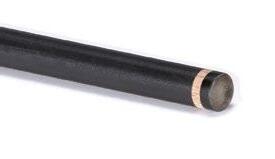
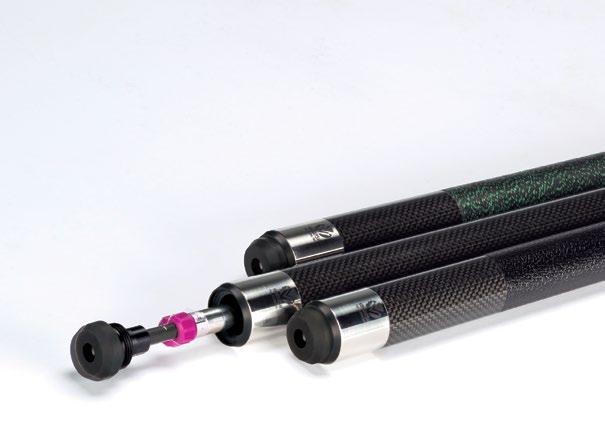
FIBER
Introducing the Vanquish Mach 1 – our most technologically-advanced break cue. This state-of-the-art carbon fiber butt features our patented Variable Balance Point technology, which allows you to adjust the weight and balance of your cue. The Mach 1 comes equipped with our newly-engineered Defy break shaft with a Navigator Break Impact tip and phenolic ferrule for maximum power and control.
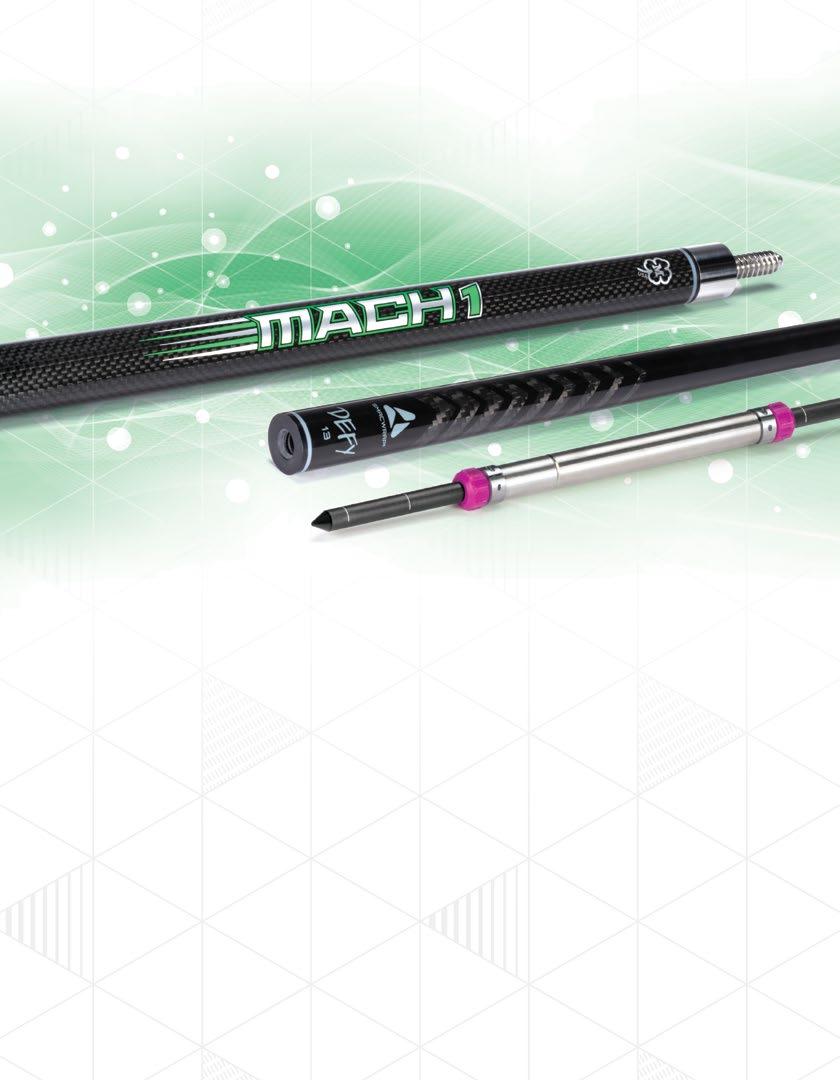
FEATURING OUR
PHENOLIC FERRULE
Navigator Break Impact is a hybrid phenolic break tip. Most phenolic tips are designed to generate power, but at the cost of cue ball control. The Break Impact tip’s hybrid construction provides tremendous cue ball control without sacrificing power.
Learn more at mcdermottcue.com/mach1
Availableinlinen,leather&no-wrapoptions!
& IMPROVED DEFY SHAFT NEW
NEW
CARBON





























 By Keith Loria
By Keith Loria
































 Gregg Fletcher APA CEO
Gregg Fletcher APA CEO
























































































































 By Anthony Stoeckert
By Anthony Stoeckert
























